What's Up and much more..
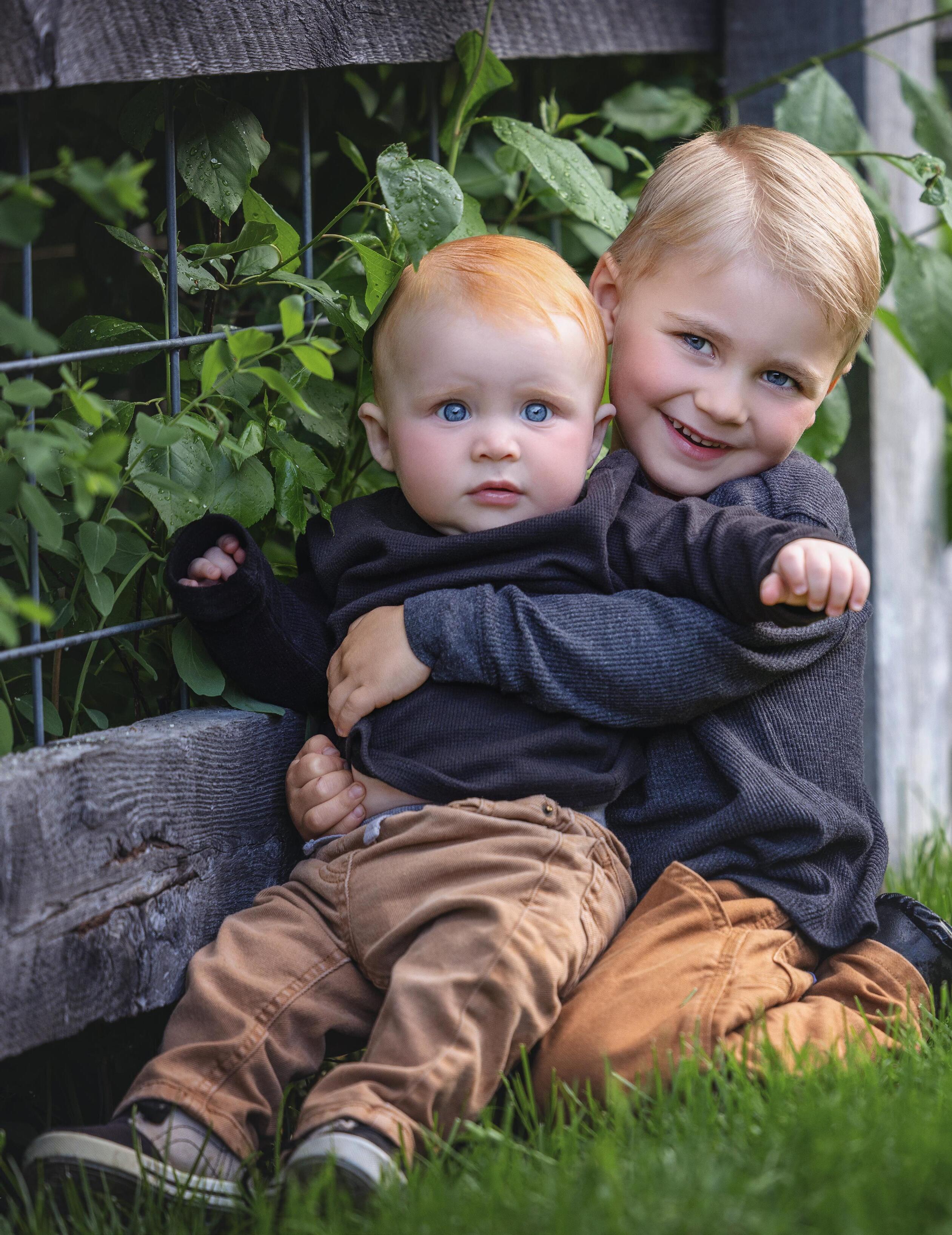

What's Up and much more..


Same day appointments for OB/GYN and Pediatric Care? The Clinic does that. With a talented local teams and frequent specialty outreach clinics, women and children from across the region will experience convenient, streamlined care right here in Gallatin Valley.








Wild about the outdoors.
Wild about public access.
Wild about adventure.
There are so many reasons to be wild about the prairie. What’s yours?
To learn what you can do to support protected lands and public access in Montana go to VisitAmericanPrairie.org.




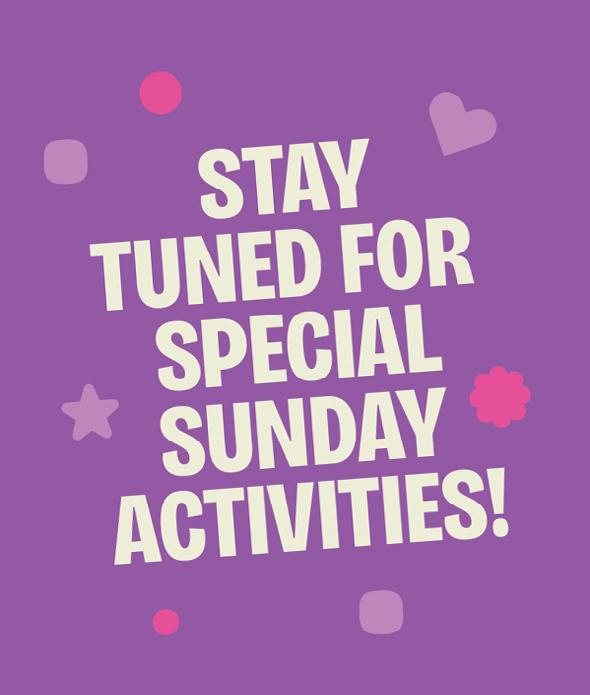

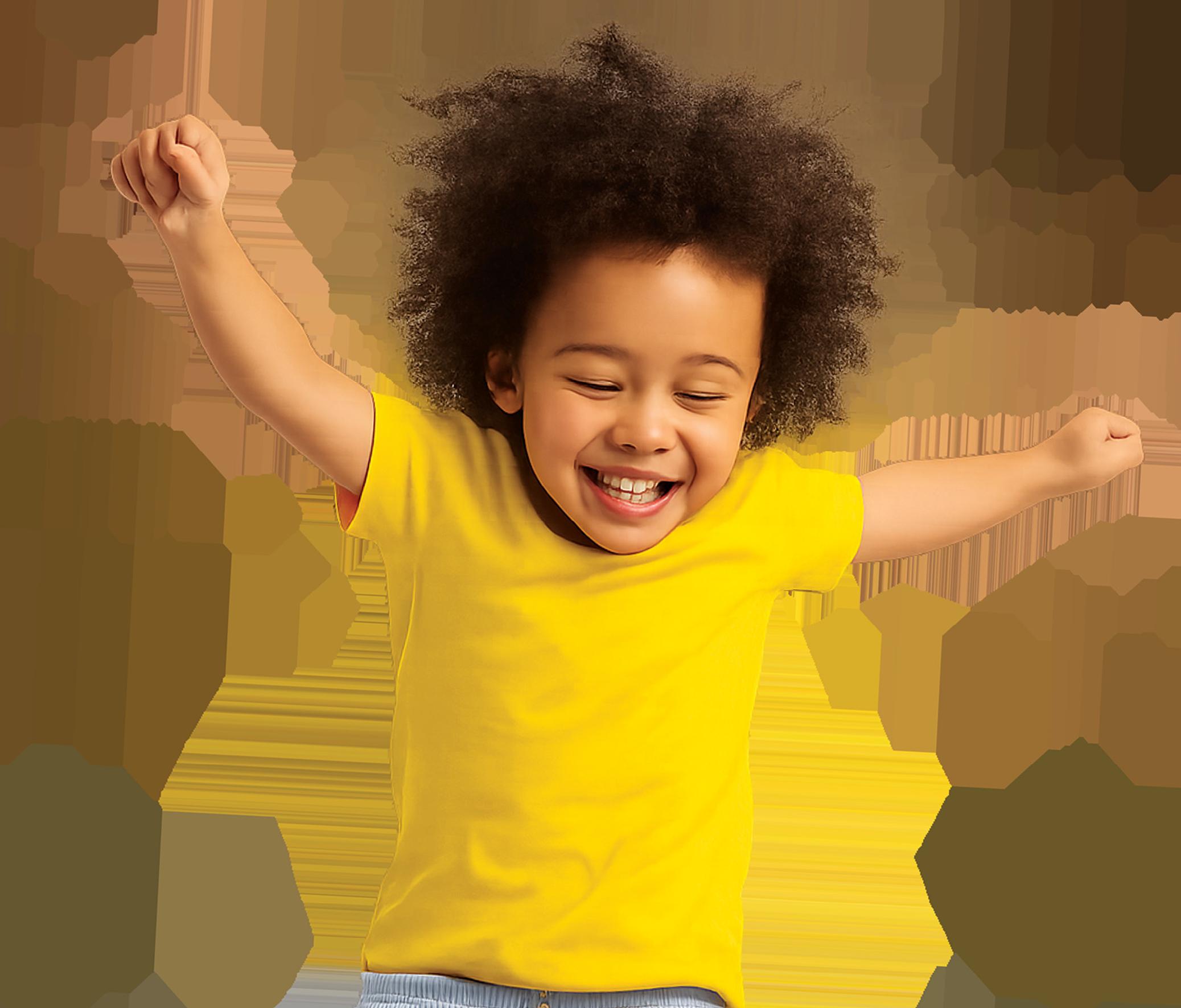

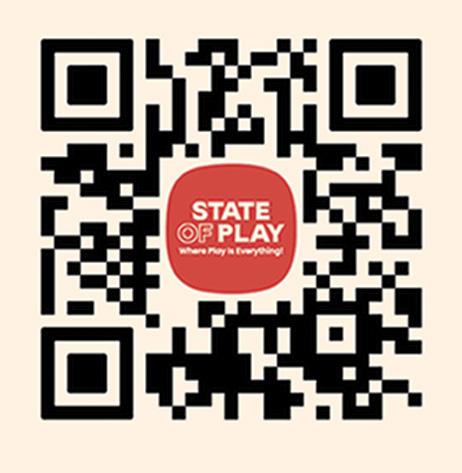
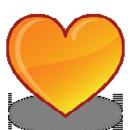
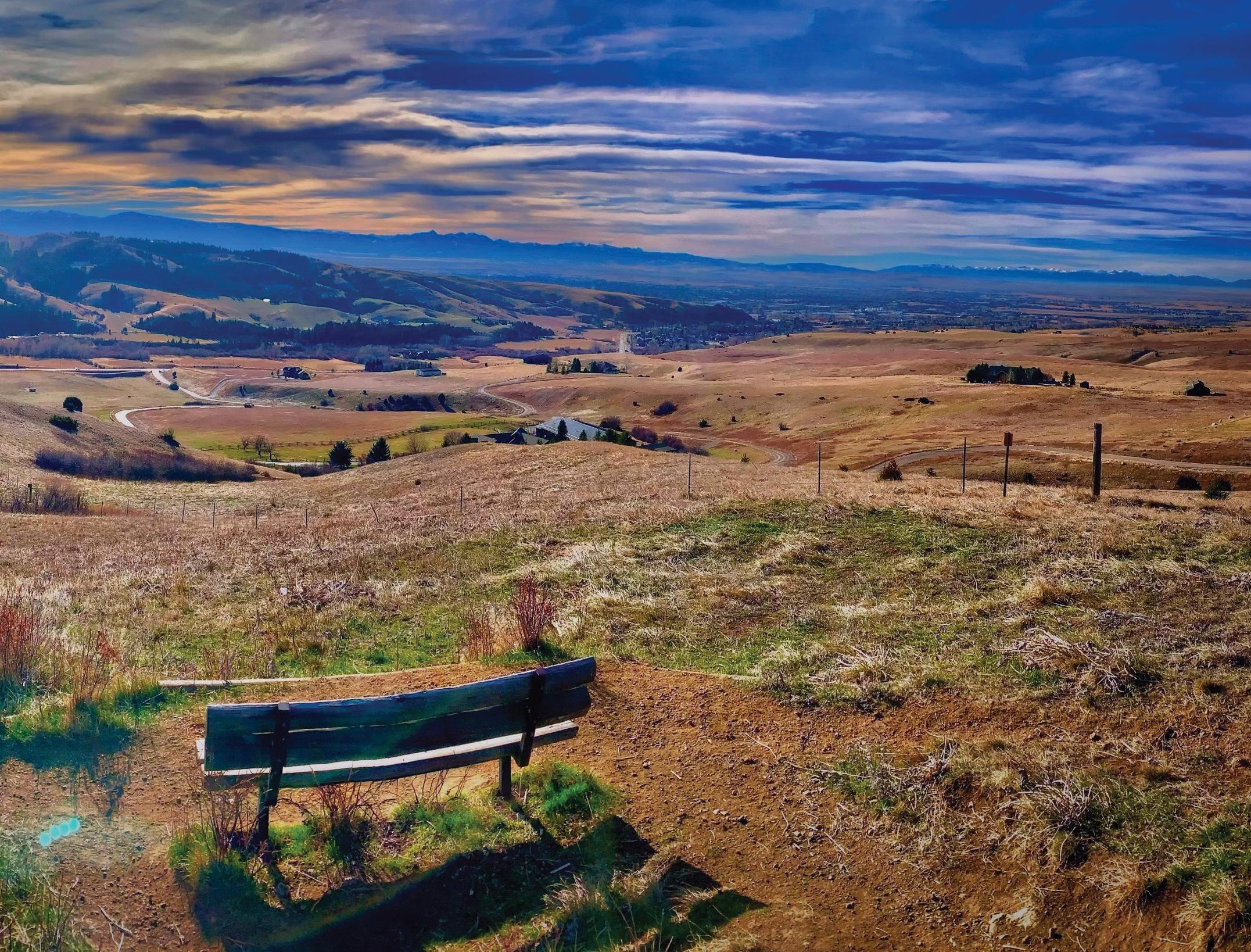


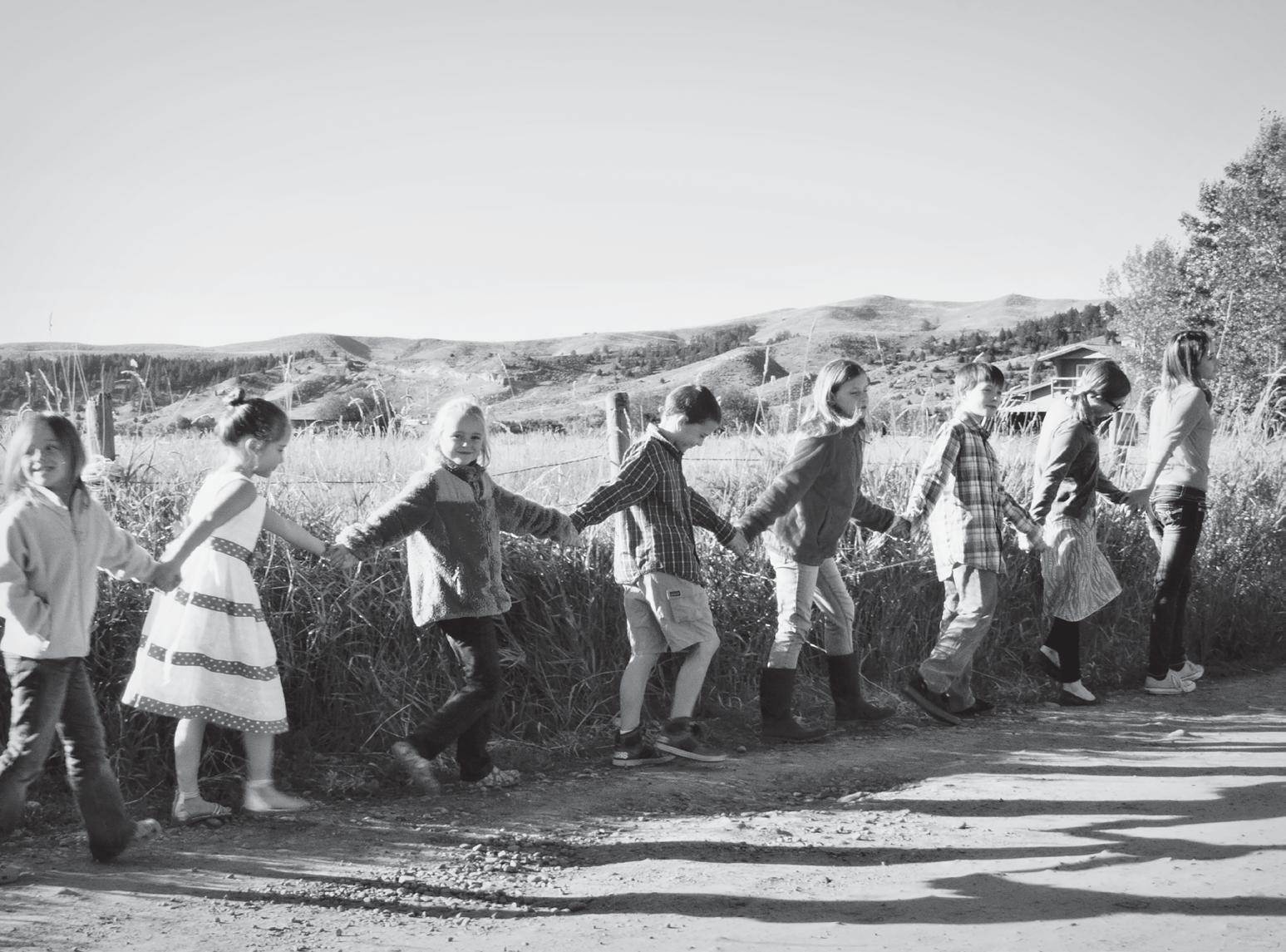

PUBLISHER MEDIA MAVENS LLC PO BOX 11056, BOZEMAN, MT 59719 INFO@MTPARENT.COM
ADVERTISING/OWNER CORA DESANTIS | CORA@MTPARENT.CO M | 406-579-0746
EDITOR IN CHIEF/ACCOUNTING/OWNER LEIGH RIPLEY | LEIGH@MTPARENT.COM
CREATIVE DIRECTOR/OWNER SHAUNESCY WILLARD | SHAUNESCY@MTPARENT.COM
LAYOUT & DESIGN SHAUNESCY WILLARD
COPY EDITORS ELEONORE SNOW & LEIGH RIPLEY AD DESIGN BRIGID FLORIAN
COVER PHOTO ADP STUDIO
BLOG BRIGID FLORIAN
SOCIAL MEDIA BRIGID FLORIAN, CORA DESANTIS
SUBMIT PHOTOS SHAUNESCY@MTPARENT.COM
CONTRIBUTORS
REBEKAH PRICE ORR
BLAIR FJESETH
KATIE DOLEN
MACKENZIE JOHNSON
MEREDITH JOHNSON
BRIT PHILLIPS
EMILY NILES
KYLIE CHIDSTER
ALLEGRA BERESZNIEWICZ
TAYLOR HAYTE
* Montana Parent strives to provide accurate information and entertainment to our readers. Some content may be based on opinion of the author and may not represent our views. We want all voices to be heard, so we all can be educated on both sides of important issues.
CONTRIBUTING PHOTOGRAPHERS: ADP STUDIO
KATIE DOLEN
SEAN MCFARLAND
• What’s Up? photos are from event social media pages if not supplied by the organization


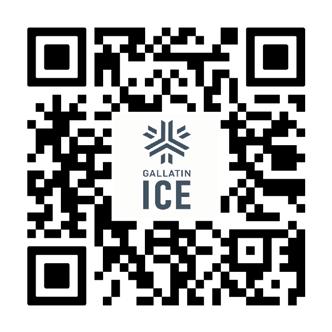


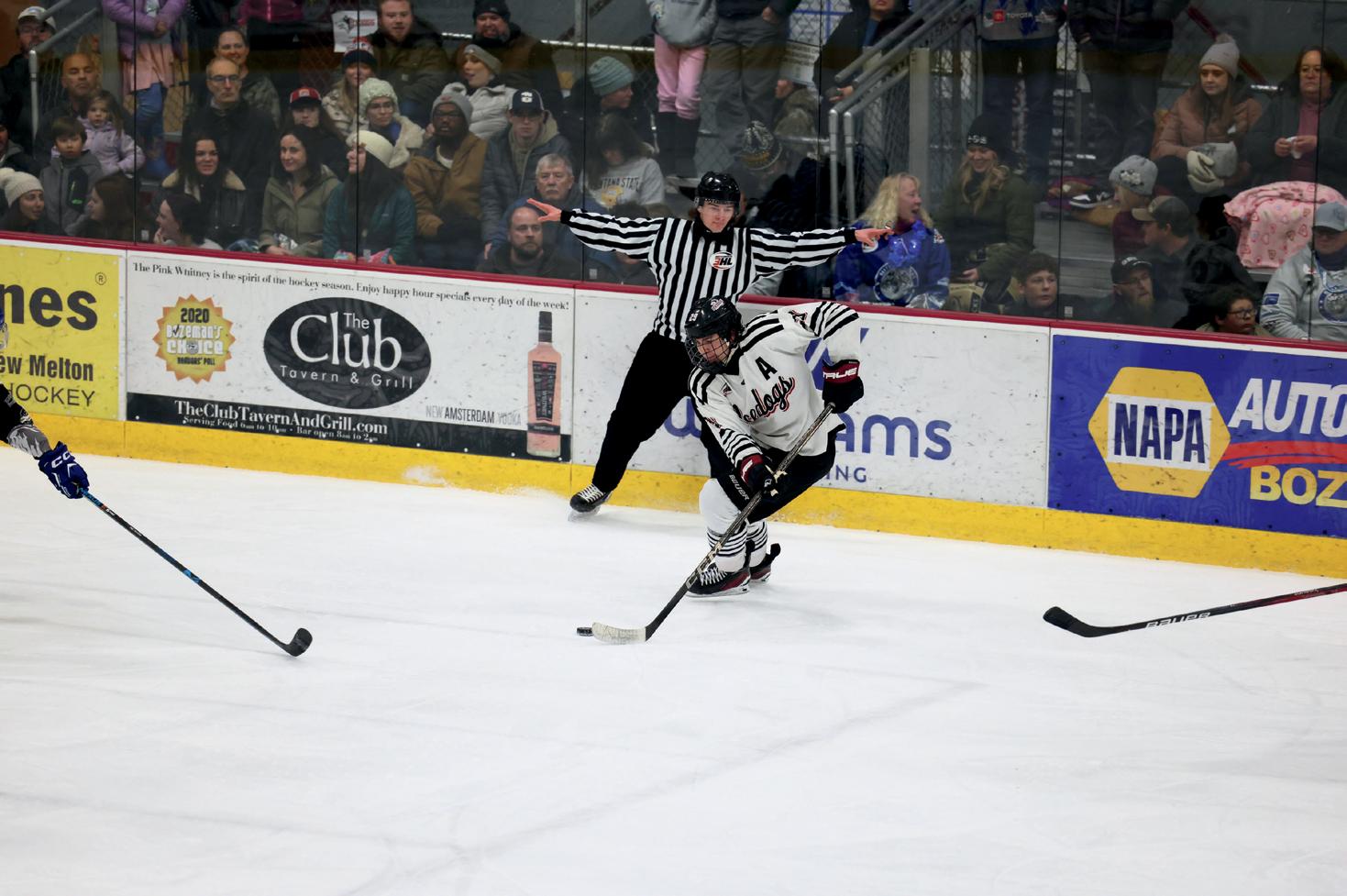



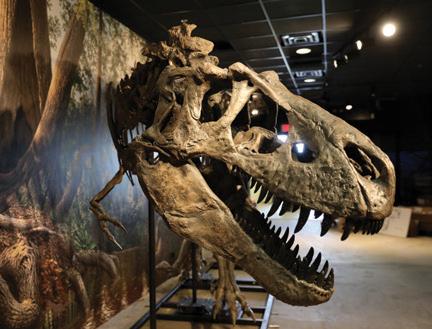

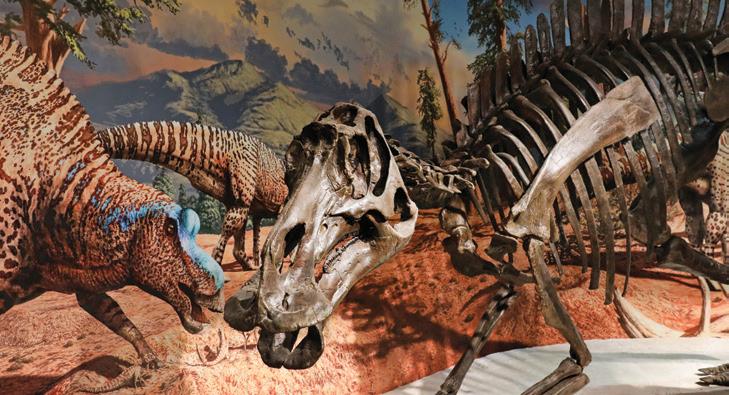
For the first time in over ten years, Museum of the Rockies unveiled a major new primary paleontology exhibition.
Cretaceous Crossroads explores a time of transition in the Northern Rockies, when a vast seaway covered North America and new dinosaur species dominated the land. The exhibit is comprised of real fossil material, 3D prints, casts, reproductions, new paleoart, murals, AV interactives, an augmented reality piece, microscope stations, discovery drawers and more.
You will see a mounted Maiasaura (Montana’s State Fossil) tending its nest, a 30-foot-long Daspletosaurus (a T. rex cousin), dinosaur egg clutches, Troodon (raptor-like dinosaur), a 23-foot long Mosasaurus, and many other specimens, some of which are only known from Montana.

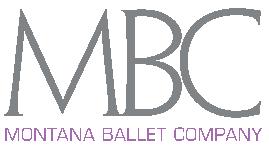


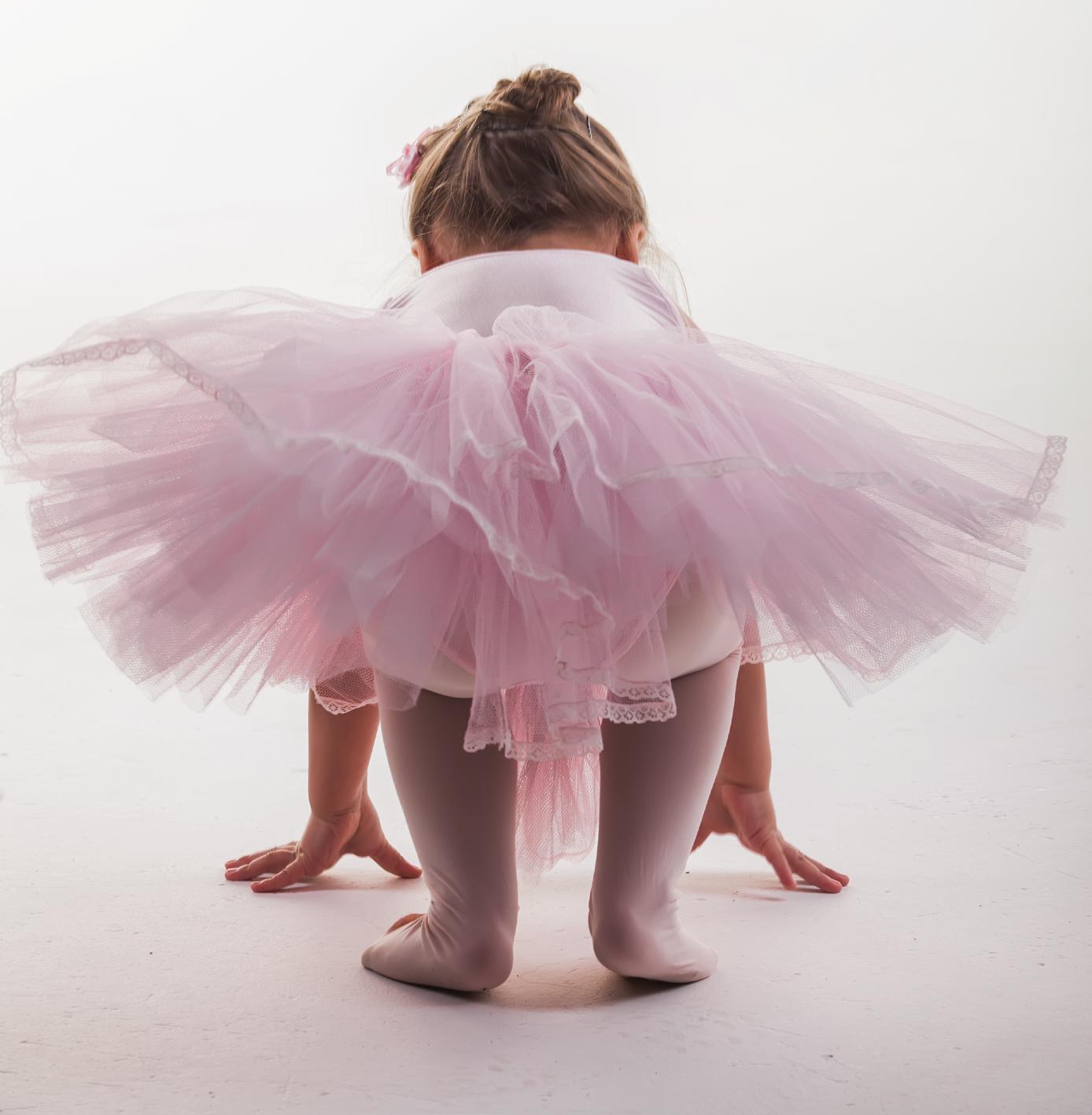

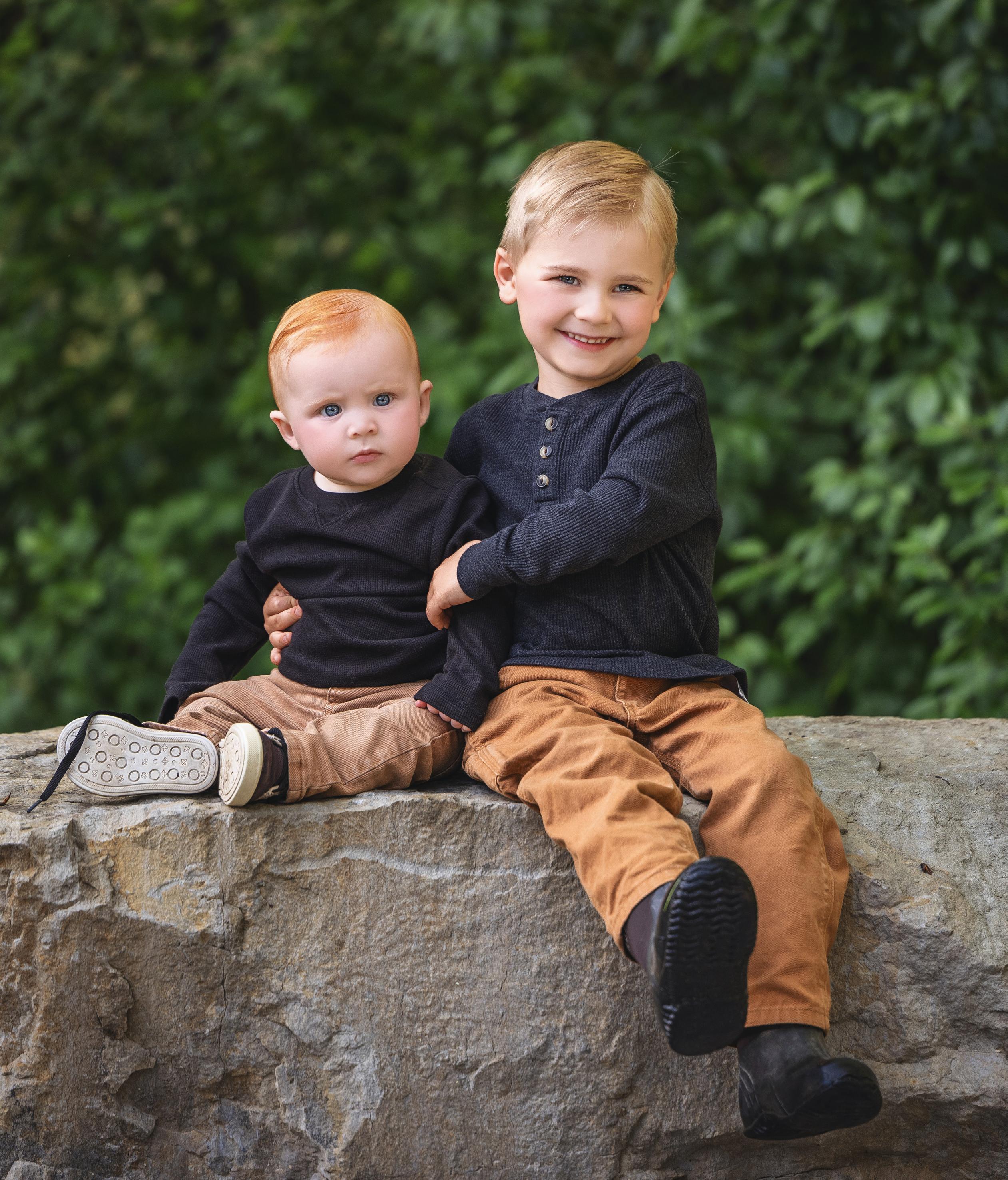
All about kids under 5: childcare, health, development, activities and more...

Pasta? Boiled. Garlic bread? Toasty. Children? Circling the kitchen like starving wolves with juice mustaches. And then — SPLAT — a red explosion on the floor like a crime scene in an Italian restaurant. The sound of my last jar of spaghetti sauce giving up on life and launching itself off the counter like a tomato-based lemming.
My blood pressure? Through the roof. Face? Flaming hot. Muscles? Tighter than the lid that was apparently not on that jar. For a moment, I strongly considered crying, running away or faking my own death and starting over as a goatherd in the Alps.
But instead, I did what any spaghettisauce-deprived parent would do.
I closed my eyes. I took a breath. I whispered a calming mantra like, “You are the adult. You are the adult. Do not throw a tantrum louder than your toddler.”
Then I opened my eyes… and switched gears. No sauce? No problem. Alfredo it is. I MacGyvered cream, cheese, and milk into a glorious, slightly lumpy but fully edible sauce.
WRITTEN BY REBEKAH PRICE ORR, LCPC
The kids didn’t care. No one even asked where the red sauce went.
If this story (or one like it) sounds familiar, then congratulations! You know how to self-regulate! Self-regulation is the ability to control or manage your thoughts, behaviors and feelings in order to achieve the outcome you are hoping for.
There is a common misconception that children are born with the ability to “self soothe” or “self-regulate.” The reality is, these are skills that are taught and not inherently known. As a therapist, I often work with parents who come in frustrated that their young child is not able to manage their own emotions and struggle with how to handle tantrums, defiance and crying. The story usually goes something like this:
Last weekend, we took our 2-year-old, Ivy, to the fair. Spirits were high. The sun was shining. Corn dogs were flowing. And then… Ivy spotted… ice cream.
Some kid was living their best life, casually strolling with a towering swirl of ice cream, and Ivy’s eyes locked on it like a heat-seeking missile. She turned to me with the intensity of a food-deprived animal, pointed and simply said “DAT!”
I told her very calmly — because I am a patient, rational adult with a Pinterest board called Gentle Parenting Goals — “We’ll get one after we go see our friend’s kid dance in the main exhibit hall.”
She immediately screamed, “NEEEEED IT!” as if she’d just learned that we were never, ever going to eat again. Then she went full greased pig mode. Every time I put her down, she bolted for the exit like she was in an Olympic sprint event.
I tried yelling, which didn’t work. I tried the stroller time-out. She treated that stroller like it was a medieval torture device and escalated her screaming to Mariah Carey whistle-note levels. At one point, a sweet little old lady hobbled over, patted my arm and asked, “Honey, are you OK?” Which is a question you never want asked in public unless you’re actively in a Lifetime movie.
I finally scooped up my tiny banshee, marched to the car and pulled the ultimate power move: Blasting Encanto at full volume to drown out her wails. I thought this would teach her a life lesson about consequences. She thought this was a challenge.
Once home, I sat in silence, eating my feelings in the form of leftover goldfish crackers and mentally reviewed my failures as a parent. I felt guilty for yelling. I felt embarrassed that she made a scene. I felt frustrated.”
While this story is relatable and (hopefully) funny, I would suggest a few tweaks to the parent’s responses. They were trying to correct behavior without connecting with their child first. They needed to help their daughter regulate before they could reason with her.
So, what is co-regulation? It is where two individuals influence each other’s emotional and behavioral states. Co-regulating with our children actually teaches them the skills to be able to selfregulate. Our toddlers learn largely by watching how we navigate the world, and less by lectures and reasoning. That part of their brain isn’t quite up to speed, and it’s even worse when they are dysregulated.
So, instead of your toddler influencing you to join their dysregulation, we can influence our young children to join us in regulation.
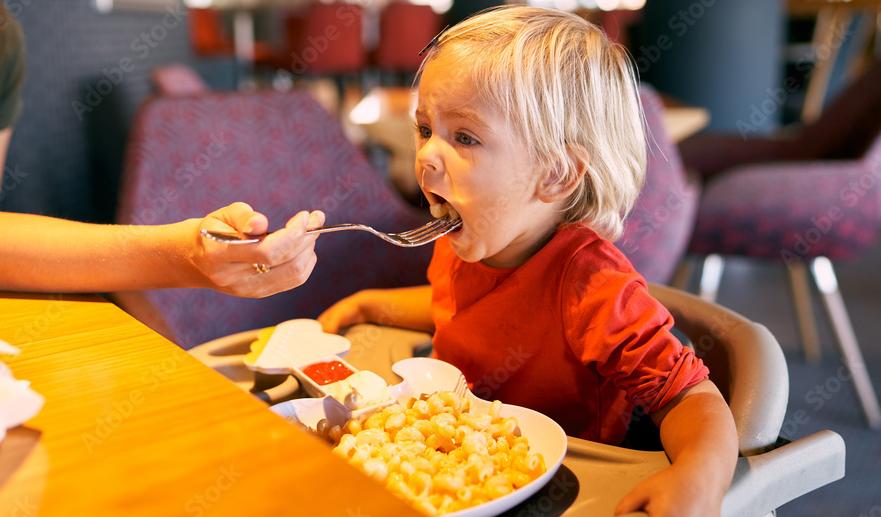
So, what does this look like? Next time you are dealing with a meltdown, try these few things:
• Check in with yourself and your own feelings.
• Are you feeling overwhelmed? Angry? Do you need to remove yourself and the child from the environment if you are in public so you can calmly attend to them? If you are in a safe place, like home, do you need to walk out of the room for a moment to compose yourself before going back to them?
• Get down to their level and make eye contact.
• Connection is the pathway to regulation.
• Model the behavior you are wanting your child to engage in.
• Use the tone of voice, volume and body language you want your child to have. The more you yell, the more they will. The more you can stay in a calm and relaxed state, the quicker they will be able to join you.
• After the child is back to a state of calm, THEN you can engage in reasoning consequences/age-appropriate discussion.
• Co-regulation does not mean that there are no consequences or boundaries. If you need to say no to ice cream, or if you need to leave the fair early — do it. Explaining the reasoning to them after they have come to a place of regulation will result in them better making the connection between their actions and the consequence. They are in a place to receive feedback once they are in a regulated state.
Hopefully next time your toddler is running amok in Target, or melting down over not being able to eat rocks at the park — remember that it is just part of their development and learning how to be a person; not a reflection of you as a parent. Kids throw tantrums. Co-regulation builds a framework of teamwork. You are learning alongside them, and there is something really connecting about looking at parenting through that lens.
Rebekah Price Orr, LCPC is a fellow parent and founder of Nature and Nurture Counseling Services, a small group practice in Helena, Montana—helping families find calm in the chaos. Learn more at www.natureandnurturemontana.com.




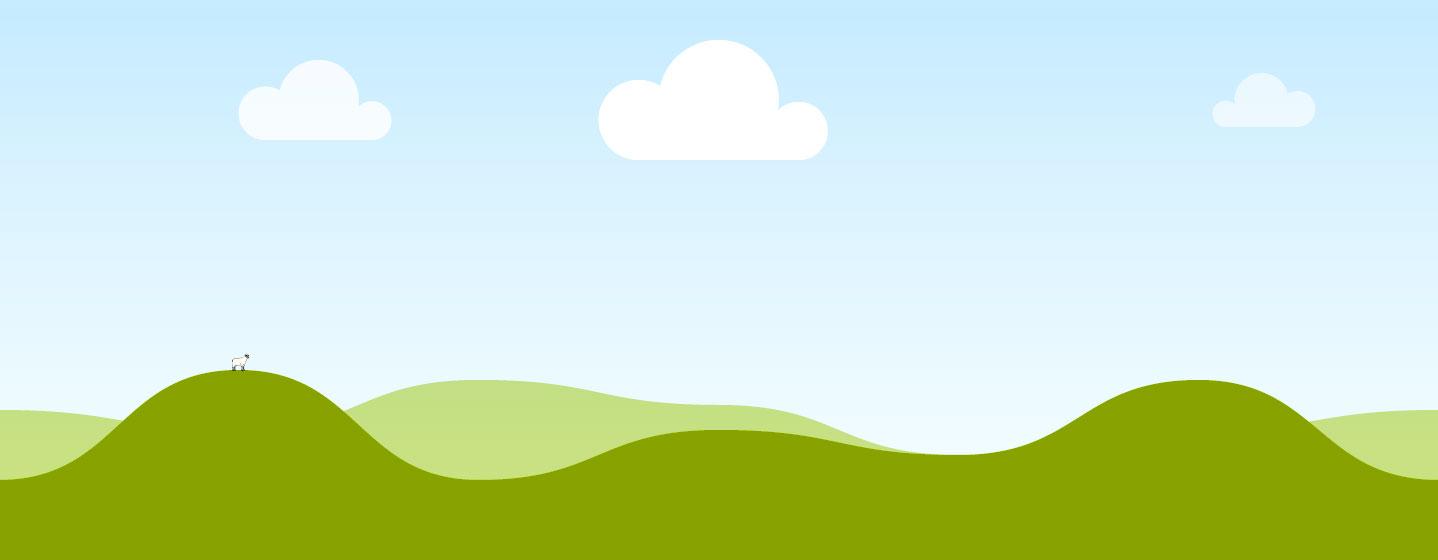
N o w E n r o l l i n g
6 t h , 7 t h & 8 t h
g r a d e r s
f o r t h e
‘ 2 0 2 5’ 2 0 2 6
S c h o o l Y e a r
WRITTEN BY BLAIR FJESETH
There are women who read parenting books. And then there are women who write the parenting book without ever putting pen to paper. My mother-in-law is the latter.
For more than 30 years, she’s been raising children—her own, and many dozens more who’ve passed through her in-home day care. Her home is the kind of place where generations of toddlers have learned to walk, share and become the people they were meant to be.
Watching her work—quietly, patiently, with fierce love and no need for recognition—has changed the way I show up as a mom.
I’ve learned more from watching her run a day care than I have from any parenting podcast or manual. Here are just a few of the lessons I’ve gathered along the way:
1. Kids don’t need constant entertainment—they need rhythm. At her house, there’s a quiet, predictable flow to the day. Breakfast always comes after books. Nap time follows a walk in the wagon. There’s a basket of wooden blocks that’s been in rotation for two decades and still gets more use than any flashy toy. Watching her taught me that consistency—not Pinterest—is the secret sauce. It’s how kids feel secure and how adults stay sane.
2. Gratitude for those in your village goes a long way. From teachers and caregivers to our day care providers — our communities are stronger because of these folks stepping in to help raise kind, caring, smart and capable children. If you haven’t recently, thank your village.
3. A peanut butter sandwich and a cup of milk solve more problems than you would think.
I’ve learned that basic needs matter more than complex solutions. When emotions run high, she checks the basics: Are they hungry? Tired? Overstimulated? That’s become my go-to checklist, too — before assuming I have a dramatic child or a character issue on my hands. Sometimes, we just need a snack and a reset. And frankly speaking, that goes for us big kids as well.
4. The small things are the big things. She remembers every child’s favorite color, their birthday and never misses a big game or recital. Watching her lifelong presence in the kids she is helping raise is all-inspiring and something that pays dividends in our community.
5. Never underestimate the power of a fresh air reset. No matter the weather, the kids go outside. Rain, snow, sun — there’s something magic about a muddy puddle or a wagon ride. I used to think I had to plan outings. Now, I know the backyard and 10 minutes can turn a whole day around.
I’ve always respected her, but as a broken-in mom now, I’ve come to see her in a new light. She’s not just a provider — she’s an anchor. A woman whose calm presence, steady hands and quiet love have shaped more lives than she probably realizes.
If I can carry even half of what I’ve learned from her into my own parenting, I’ll consider it a legacy well-lived.
Blair Fjeseth is a working professional and proud Montana mom. You can reach her at blairparker.inc@gmail.com.
ARTICLE AND PHOTOS BY KATIE DOLEN, COFOUNDER OF STATE OF PLAY
For children, the hours after school hold a unique kind of potential. It’s a window of time when learning can feel a little more playful, creativity can lead the way and kids can begin to make sense of their inner world. That’s exactly the inspiration behind State of Play’s newest after-school offering for children ages 6 to 10 — a program that merges social and emotional development with the expressive power of art.
We know that art isn’t just for making pretty things. It’s a powerful tool for self-expression, especially for children who may not yet have the language to explain how they feel or what they’re navigating socially. Research shows that when kids engage in creative activities — drawing, painting, building — they activate parts of the brain responsible for processing emotion, building resilience and reducing stress. When you add guided socialemotional prompts into that process, the result is a rich, therapeutic experience that helps children understand themselves and others more deeply.
So how does it work?
Each class in State of Play’s new afterschool series begins with a simple but thoughtful questions such as:
Ç What is a friend?
Ç Where do you feel safe?
Ç What color is your mood today?
• These prompts spark conversation, storytelling and, ultimately, art-making. One week, students might be asked to design a friend who doesn’t exist in real life. Using drawing tools, they’ll imagine what this character looks like, how they talk, what makes them

kind and what makes them a great friend. Through the process, kids are not only exploring qualities of friendship, but also reflecting on their own needs and values in relationships.
Another week might invite students to build a model of their “calm place” using recycled materials and mixed media. For one child, that might be a forest fort; for another, a cozy corner filled with pillows and pets. These projects give kids the chance to visualize safety, regulate their emotions and engage in conversations about coping strategies—all while using their hands and imagination.
The intention isn’t to “teach” kids emotions in a didactic way, but to create an environment where emotional awareness emerges organically through creativity, collaboration and reflection. With the guidance of experienced facilitators, each session becomes a blend of art class and community circle, a time where self-expression is met with curiosity and care.
Want to try this at home? Ask your child, “What does a safe place feel like to you?” Then offer crayons, scissors or a shoebox and build that place together. It might lead to a beautiful piece of art — or an even better conversation.
Our new program at State of Play is designed for kids who are eager to create, connect and explore who they are through the arts. Whether your child loves drawing, building, imagining — or just needs a little more space to be themselves — this offering supports their whole self: heart, mind and hands.
State of Play’s After School Art & Social-Emotional Program will run in six-week sessions on Mondays from 4-5 p.m. at their Cannery District location. To learn more or enroll, visit stateofplay.co.

“The intention isn’t to ‘teach’ kids emotions in a didactic way, but to create an environment where emotional awareness emerges organically through creativity, collaboration and reflection.”
~ Katie Dolen

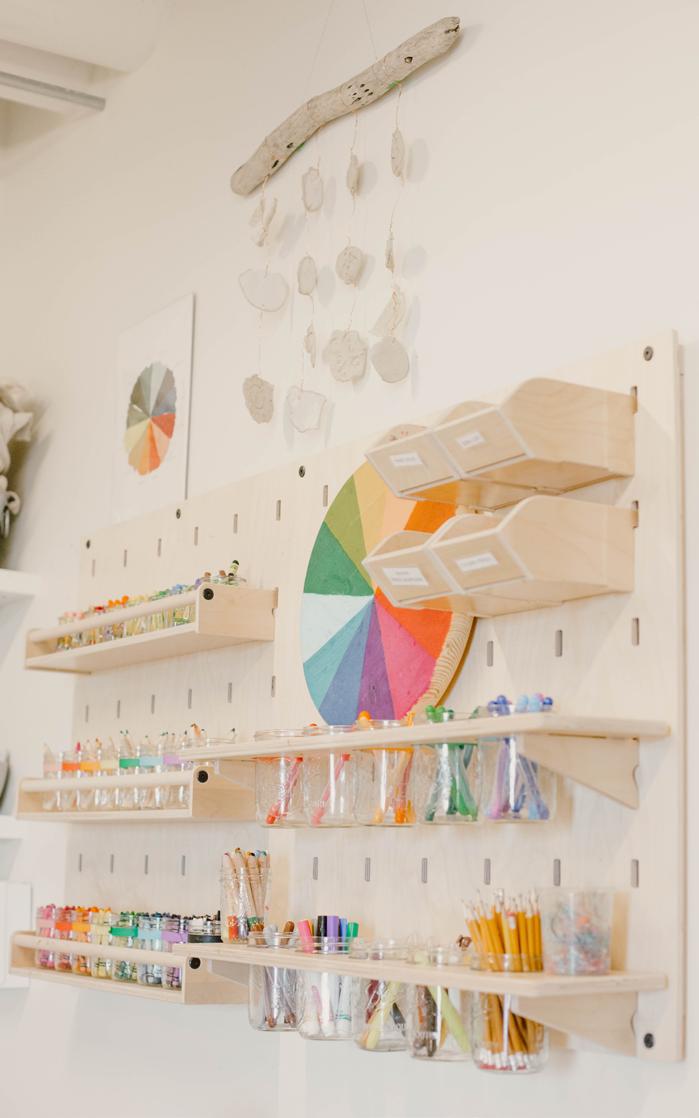


WRITTEN BY MACKENZIE JOHNSON
I recently tuned into an episode of The Mel Robbins Podcast featuring Dr. Aliza Pressman, developmental psychologist and bestselling author of The 5 Principles of Parenting. Within moments, I knew this conversation was going to stick with me— not just as a parent, but as someone deeply embedded in a community committed to supporting families from preconception through parenthood.
Dr. Pressman speaks with clarity and compassion about the essential principles that shape effective parenting. From setting healthy boundaries to learning how to make meaningful repairs when we inevitably make mistakes, her insights are rooted in both science and lived experience. But what struck me most was the very first thing she emphasized: The importance of connection.
“The parent is born when the child is born,” Dr. Pressman said. That line lingered. It doesn’t matter if it’s your first baby or your fourth— the identity shift into parenthood is profound, every time. She reminds us that we aren’t just raising children; we are growing ourselves. And no one is meant to do that alone.
This truth sits at the heart of what we do at Roots Family Collaborative. Since 2017, we’ve been supporting new, expecting and wishful families in Gallatin and Park Counties by building many of the very connections Dr. Pressman describes. Roots exists to connect parents to parents through support groups, programs, classes and special events; to connect parents with professionals—through our trusted resource guide; and to connect professionals to one another through our Provider Collaborative, creating a coordinated network of care.
Additionally, we raise awareness about perinatal mental health, normalize the full spectrum of emotions that show up during that period and strengthen the social safety net for the hundreds of families undergoing this major life transition each year.
At Roots, we recognize that your support system shapes how you parent, how you love and how you show up. From the hormonal highs and lows of postpartum to the uncertainty of fertility journeys, the early parenting years are marked by constant transition—and deep transformation. In those moments of doubt, joy, fear and hope, community becomes a lifeline.
In every gathering, we witness the quiet power of shared experience— parents holding space for one another through sleepless nights, feeding struggles, shifting identities and profound grief. Within that space, resilience takes root.
Explore our year-round programming: Whether you’re preparing for birth, adjusting to life with a newborn, navigating loss or simply searching for a space to exhale—we’ve saved you a seat.
Because connection isn’t just helpful, it’s healing. It’s the foundation.
Let’s grow through this, together.
Mackenzie Johnson is the Program and Partnerships Director for Roots Family Collaborative.






Blossom Mom Blossom Mom
*Livingston* 1st & 3rd Tuesdays 10-11 am
Breastfeeding & Breastfeeding & infant feeding infant feeding group group
Tuesdays, 5:15-6:15 pm
Wednesdays, 10:30-11:30 am Zoom
Thursdays, 1-2:30 pm
Dads group Dads group
Tuesdays, 10:30-11:30 am
Second Wednesday of the month, 6:30-8 pm
loss support loss support Circle Circle
Second Monday of the month, 6-7:30 pm
Corazón Corazón de madres de madres

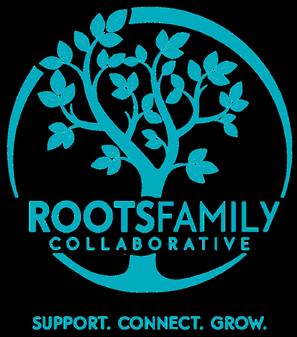
Fertility Fertility support support
El segundo viernes de cada mes 10-11 am
First Saturday of the month, 10-11:30 am

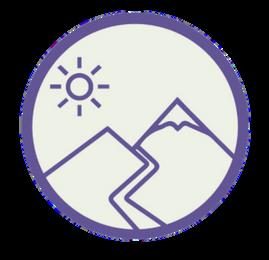

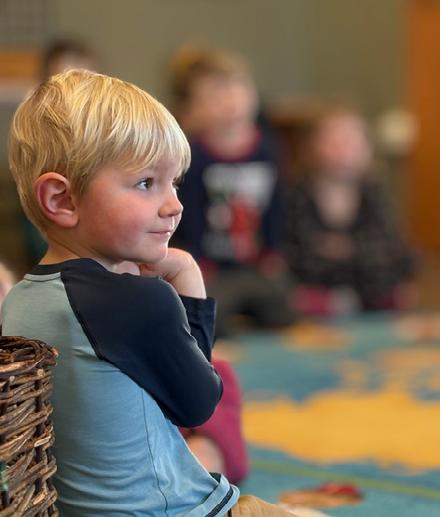
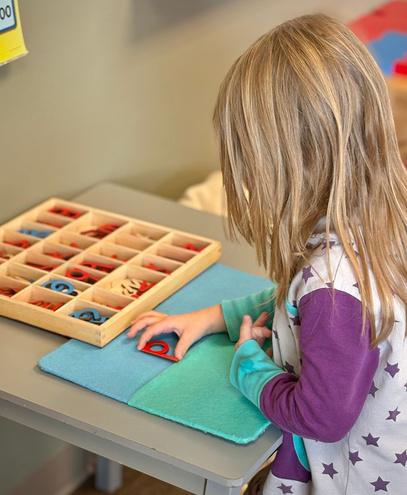






Helena Village Collective (HVC) is a nonprofit group that started in 2024. The HVC aims to ensure every parent has the knowledge and support they need to nurture both their child/ren and their parenting journey through community care and connections. They also provide guidance and resources to perinatal professionals working within Helena and its surrounding communities.
HVC offers groups and activities regularly throughout the year, including:
Ç The Village Gathering
A free, weekly parent-baby community group held every Monday morning from 11 a.m.-noon at Helena Food Share (1280 Boulder Ave.). Come as you are, find resources you need, or didn’t know you needed, or just hang out quietly for a while. There will always be a member of the Helena Village Collective on hand to answer questions and cheer you on.
Ç The Village Circle
A free, monthly peer support group held the second Thursday from 5-6 p.m. at Larch (600 N. Park Ave). Come share the challenges of parenthood, make connections and leave nourished. Infant and toddler childcare will be provided on site. Please email hello@ helenavillagecollective to RSVP for childcare.
Ç Family Care Tent
Find the Family Care Tent at the farmers market, Birth and Baby Expo and other Helena area events all summer long. Need a quiet place to feed your baby or change a diaper? Look for the tent.
Ç Resource Guide
Last month, HVC debuted their Helena Resource Guide in partnership with Montana Parent magazine. If you need a copy, email hello@helenavillagecollective. Or click HERE to read the digital edition.
Ç Other Events
You can keep an eye on HVC ’s calendar for other special events and events of partners in the community https://www.helenavillagecollective.org/calendar.html
If you are needing support, community or resources, do not hesitate to reach out. HVC would love you to be a part of their village!


For more information and to register for Bozeman Parks & Recreation programs, visit www.bozeman.net/recreation or call 406-582-2290.

Bozeman Literacy Trail in Bozeman Pond Park
Ç Read a picture book a few pages at a time and move your body as you travel between kiosks positioned along the trail. New books, geared toward children between ages 2 and 7, will be added every other month. The trail is offered in partnership with Bozeman Parks & Recreation and MSU College of Education, Health and Human Development, and is located near the Bozeman Pond Park north parking lot (next to Lewis & Bark Park off Fowler Ave).
Ç The Bozeman Swim Center is a 50-meter, 8-lane indoor aquatic facility that is open year-round. The crystal-clear water is kept at 82 degrees and the pool is outfitted with life jackets, recreation toys and water fitness equipment to offer a variety of aquatic activities to the Bozeman community. Swim lessons are available for children ages 3 and above.
Ç Miss Brit, the Montana Music Mama, offers music classes specially designed to be accessible and enjoyable for caregivers and littles alike. Classes are 30 minutes and include interactive musical activities that are perfect for children under 6 and their caregivers. Classes are free and no registration is required.
Mondays, 10-10:30 a.m. September 8 and 29
Location: Bozeman Pond Park (700 S. Fowler) Meet in the north portion of the park by Lewis & Bark Dog Park.
Mondays, 10-10:30 a.m.
• October 13, 27
• November 10
• December 15
• January 12, 26
• February 9, 23
• March 9, 23
Location: Story Mansion (811 S. Willson)
Story Mill Sprouts Preschool Programs
Ç Story Mill Sprouts Preschool programs are offered for children ages 2 to 5. Themes change each month but the fun remains the same. Parents and/or guardians are required to attend with their children.
Rec Mobile
Ç The goal of this free program is easy access to recreation for younger children in Bozeman’s park spaces. Recreation Leaders will provide equipment and activities for preschool-aged children (2 to 5 years). No preregistration is required; just drop-in and join the fun. Parents/ guardians are required to attend with their children.
Monday, Wednesday and Friday, 10-11 a.m.
September 8-October 3
(no Rec Mobile September 29)
Location: Harvest Creek (Monkey Park), 725 N. Aster Ave.
October 6-24
(no rec mobile on October 17)
Location: Gran Cielo Park, 3003 S 27th Ave.
Get Your Kicks - Soccer
Ç This is a fun soccer program designed to introduce young children to the basics of soccer. Through playful drills, games and teamwork activities, kids will develop motor skills, coordination and confidence while learning the fundamentals of the sport. Perfect for beginners, this program fosters a love for physical activity in a supportive and encouraging environment.
Tuesdays and Thursdays
September 16-October 2
Ç Session 1: 10:30-11:15 a.m.
3–4-year-olds
Ç Session 2: 11:30 a.m.-noon
2–3-year-olds
Location: Story Mill Community Park, 600 Bridger Dr.
Fee (per session): $35 city of Bozeman residents, $50 nonresidents
Tykes on Bikes
Ç Bring your balance bikes or borrow one from Bozeman Parks & Recreation. Kids ages 2-4 will learn the basics of riding balance bikes through obstacle courses at the Story Mill Community Park balance bike trail and end the class with a bike parade.
Tuesdays and Thursdays
October 7-28
(no class on October 16)
Ç Session 1: 10:30-11:15 a.m.
3–4-year-olds
Ç Session 2: 11:30 a.m.-noon
2–3-year-olds
Location: Story Mill Community Park, 600 Bridger Dr.
Fee (per session): $35 city of Bozeman residents, $50 nonresidents
Park and Play
Ç The Story Mill Community Center gym will be open on Friday mornings from 10-11 a.m. and full of fun activities for preschoolers to explore at their leisure. No preregistration is required. Parents or guardians are required to stay with their children.
Fridays
November 14-February 27 (excluding: November 28, December 26 and January 2)
Fee (per time): $3 city of Bozeman residents, $4 nonresidents
Little Dribblers - Basketball
Ç This class will introduce preschoolers to basketball through a variety of activities that keep your child moving. The focus will be on basic skills and a lot of fun.
Mondays and Wednesdays
November 3-19
Ç Session 1: 10:30-11:15 a.m.
3–4-year-olds
Ç Session 2: 11:30 a.m.-noon
2–3-year-olds
Location: Story Mill Community Center, 600 Bridger Dr.
Fee (per session): $35 city of Bozeman residents, $50 nonresidents

Two Bozeman Locations
(North campus) 3774 Equestrian Ln. (South campus) 233 Enterprise Blvd. Serving ages 6 mths to 6 yrs
• Hot lunches and snacks from our own school kitchen included with tuition
• Weekly music classes included
• Supportive community of teachers and families
• Licensed early childhood center with DPHHS since 2013
• Children’s developmental needs supported by trained Montessori teachers
• Variety of scheduling options available
• Spacious, beautiful environments
• STAR 4 in Montana’s voluntary Quality Rating System (QRS)
CONTACT US TODAY!
Email: enrollment@bozeman montessori.com
Ph: (406) 600-8098 www.bozemanmontessori.com
Follow us on


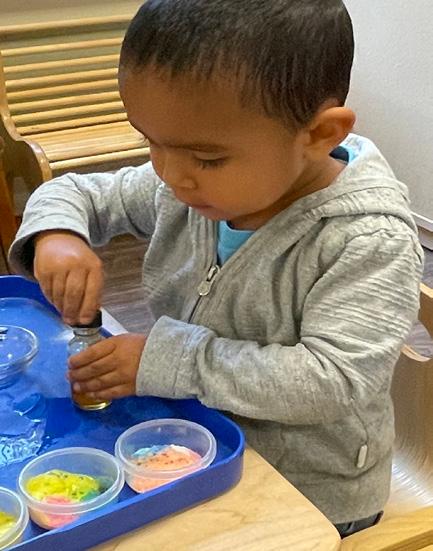

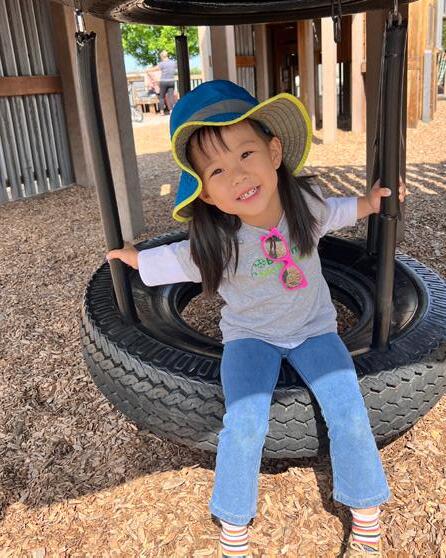
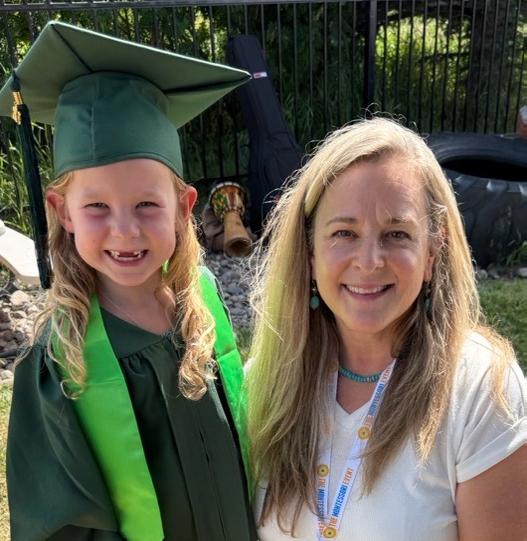
Ç Celebrate the season with movement, music and merriment. In this festive preschool class, little ones will jump, dance and play their way through joyful holidaythemed games and seasonal crafts. From reindeer relays to jingle bell dances, this energetic class is the perfect way to keep the holiday spirit moving and fun.
Mondays and Wednesdays
December 1-17
Ç Session 1: 10:30-11:15 a.m.
3–4-year-olds
Ç Session 2: 11:30 a.m.-noon
2–3-year-olds
Location: Story Mill Community Center, 600 Bridger Dr.
Fee (per session): $35 city of Bozeman residents, $50 nonresidents

Blocks and Beyond
Ç In this fun and engaging class, preschoolers will explore building with blocks, LEGOs and other creative materials.
Mondays and Wednesdays
January 5-26 (no class January 19)
Ç Session 1: 10:30-11:15 a.m.
3–4-year-olds
Ç Session 2: 11:30 a.m.-noon
2–3-year-olds
Location: Story Mill Community Center, 600 Bridger Dr.
Fee (per session): $35 city of Bozeman residents, $50 nonresidents
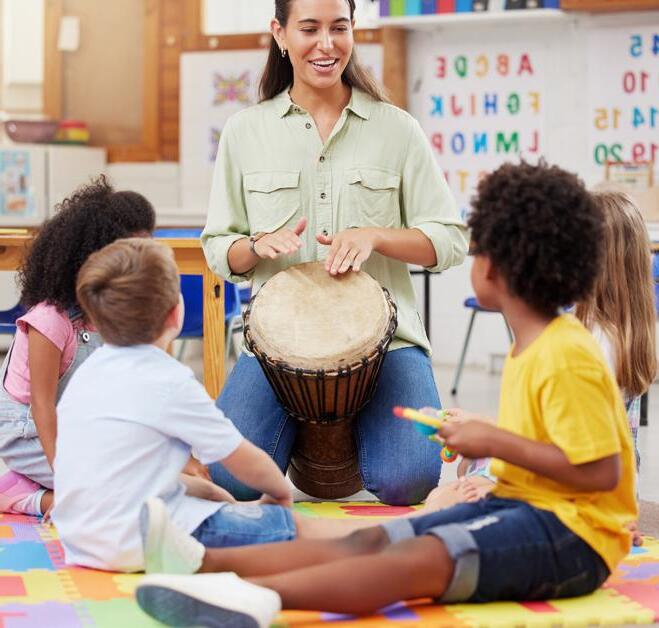
Tiny Tunes and MovesMusic and Movement
Ç Wiggle, dance, sing and make musical instruments in this class.
Mondays and Wednesdays
February 2-23 (no class February 16)
Ç Session 1: 10:30-11:15 a.m.
3–4-year-olds
Ç Session 2: 11:30 a.m.-noon 2–3-year-olds
Location: Story Mill Community Center, 600 Bridger Dr.
Fee (per session): $35 city of Bozeman residents, $50 nonresidents
SuperTots Sports Academy - Ages 2-5
Ç SuperTots Sports Academy provides sport-based development programs where children discover and develop athletic, motor and social skills. The SuperTots curriculum is specifically designed to promote development alongside a healthy, active lifestyle. For program details and to register, visit register. skyhawks.com and enter your zip code.
SoccerTots
Ç These soccer-themed motor skill classes are very easy for youngsters to get into. Younger age groups (2-3 years) focus on developing motor skills and selfconfidence; older classes (4-5 years) focus more on developing core soccer skills. The instructor-to-student ratio is kept small to maximize individual development.
CUBS - AGES 2-3
Saturdays
Ç Session 1: September 6 -October 4 (no class on September 20)
Ç Session 2: October 18-November 15 9:30-10:10 a.m.
Location: Story Mill Community Center Gym, 600 Bridger Dr.
BEARS - AGES 3-4
Saturdays
Ç Session 1: September 6 -October 4 (no class on September 20)
Ç Session 2: October 18-November 15 10:20-11 a.m.
Location: Story Mill Community Center Gym, 600 Bridger Dr.
GRIZZLIES – AGES 4 -5.5
Saturdays
Ç Session 1: September 6 -October 4 (no class on September 20)
Ç Session 2: October 18-November 15 11:10-11:50 a.m.
Location: Story Mill Community Center Gym, 600 Bridger Dr.
City of Bozeman Public Skating Rinks
Ç Opening dates for the city ice-skating rinks vary according to weather and conditions. Rinks close when weather is too warm or the ice becomes too soft. For rink conditions, visit Bozeman.net/parks or call 406582-2905.
Rink Hours
Ç Monday-Friday: noon-10 p.m.
Ç Saturday and Sunday: 10 a.m.-10 p.m.
Southside Park: Fifth Avenue and College Street
Beall Park: Villard Street and Black Avenue
Bogert Park: South Church Avenue
*Rink is closed for city ice-skating lessons on Tuesdays and Thursdays from 4-6 p.m.

Bozeman Public Library
Baby Storytime
Ç Features 15 minutes of songs and movement, one short board book and 45 minutes of sensory play, process art and gross motor exploration. Especially for kids from birth to 35 months and their caregivers. Held every Tuesday and Thursday at 10:15 a.m. in the Community Room unless otherwise noted.
Toddler & Preschool Storytime
Ç Features 20 minutes of songs and movement, one or two full-length picture books and 40 minutes of sensory play, process art and fine motor exploration. Kids may be invited to use tools like scissors, glue or tweezers during this program and may handle materials that are choking hazards for babies. Especially for kids ages 3-5 and their caregivers. Held every Wednesday and Friday at 10:15 a.m. in the Community Room unless otherwise noted.
Family Storytime
Ç Features 20 minutes of songs, stories and movement and 40 minutes of playtime. Library staff varies this program week-to-week to meet the developmental needs of the attending little ones. Especially for kids from birth through 5 years and their caregivers. Every Saturday at 10:15 a.m.; check out the Bozeman Public Library events calendar for current location.

Symphony Storytime
Ç The Bozeman Symphony invites families with young children—especially those ages 3 to 5—to experience Symphony Storytime, a free and engaging program presented in partnership with the Bozeman Public Library in its Community Room at 626 E. Main St.
Symphony Storytime is designed to inspire a love of music, reading and creative discovery in young children. Each session coincides with the library’s regular Toddler and Preschool Storytime at 10:15 a.m. There is a special guest reader and a live performance by a Bozeman Symphony musician bringing a beloved storybook to life in an engaging, multi-sensory experience.
The 2025-26 season Symphony Storytime dates:
• Wednesday, September 17
• Wednesday, October 8
• Saturday, November 8
• Wednesday, December 10
• Wednesday, January 14
• Wednesday, February 11
• Saturday, March 14
• Wednesday, April 22
• Wednesday, May 13
• Wednesday, June 10
“We created Symphony Storytime to nurture a lifelong appreciation for music, storytelling and literacy,” said Cierra Wallace, Education and Community Engagement Coordinator for the Bozeman Symphony.
“By partnering with community organizations like the Bozeman Public Library, we’re helping young children connect with diverse stories, cultures and musical experiences in a fun and accessible way.”
Follow the Bozeman Symphony on Facebook and Instagram for updates on featured instruments, musicians and readers. For more information, visit www. bozemansymphony.org or call 406-585-9774.


Ç Where else can you see an authentic Triceratops brow horn, meteorite, dinosaur poop AND bugs? For no admission fee! With staff supervision, kids can hold or feel the seldom seen. Staff is eager to share how the study of certain fossils sparked the invention of the submarine; or why the Morpho butterfly tends to be an introvert. Two quarters can buy a piece of history that lasts...forever. This shop is proud to be a resource of “where can we go find...?” They also stock picks, mini-shovels and gold pans needed to find “treasure.”
Ç Located at the Gallatin County Fairgrounds, Gallatin Ice has two recreational indoor ice facilities and offers public skating, Learn to Skate and Learn to Play Hockey lessons, youth hockey leagues and more, all for ages 4 and up. Skate rentals are available on site.
Motherhood | Alliance | Equity | Village | Empowerment
Ç MAEVE Bozeman Motherhood is a local chapter of a national nonprofit whose mission is to empower all who mother in support of one another and their communities. MAEVE Bozeman is comprised of more than 180 members in Bozeman and surrounding communities. Join them for connection and friendship through regular playgroups and meet-ups, park playdates, field trips, community service opportunities, educational speakers, book club, holiday parties, Moms’ and Parents’ Night Out and more. Visit www.maevebozeman.org or Facebook @maevebozeman.

Company
Ballet for ages 2 to 5
Ç Montana Ballet Company offers ballet classes for ages 2 to 5: Mini-Movers and Pre-Primary.
Mini-Movers is designed for toddlers ages 2 to 3 accompanied by a parent/caretaker. Little ones adore dancing — and dancing with someone they love is even better!
From its inception in 2022, Mini-Movers has seen moms, dads, grandparents, mannies and nannies join in on the joy of movement and fun in the ballet studio with their special little ones.
For children ages 3 to 5 who are potty trained and ready to take class independently, it’s time for Pre-Primary, a beginning ballet creative movement program where no previous experience is necessary.
All kids are natural dancers, and MBC offers many programs to explore the art form. For those ages 2 through 5, it’s via Mini-Movers and Pre-Primary.
For more information visit www.montanaballet. org. Fall registration is open now.
Ç These playful music classes for kids support every child, no matter their learning style or stage of development. Each weekly class includes lots of music activities especially created for young children, led by a trained teacher who inspires everyone to join in the fun.
Music Together offers Babies Class and Mixedage Classes where parents and children (from infants to age 5) sing, play and move together. It’s a fantastic way to make friends and make music a part of your week. Sign up to visit a class free and experience it for yourself; visit www.musictogetherbozeman.com
Thrive
Ç Experience the benefits of Parent Place programs at no cost. These homegrown, evidence-based programs are thoughtfully designed to enhance your parenting skills, foster connections with other families and create a sense of community.
Programming Includes:
• One-on-one parent support
• Circle of Security parenting classes
• Thriving Dads monthly group
• Mama MeetUps bimonthly group
• Parents as Teachers™ home visiting program
• Resource library
• Parent workshops and other family activities throughout the year
• Thriving together presentations on topics such as “Helping Your Child with Anxiety” and “Empowering Families in Special Eduction” taught by community experts
Visit www.allthrive.org to find the right activity for you and your family.
Ç Tours, field trips and farm visits, u-pick berries and apples and more. The Fall Festival at Rocky Creek has been a Bozeman tradition for more than 30 years. Every weekend from September 27 through Halloween, the farm is packed with festivities: hay rides to the pumpkin patch, apple picking, cider pressing and more. The farm stand will be stocked with seasonal produce, carving pumpkins, decorative gourds, apple cider and more.
Visit www.gallatinvalleybotanical. com for more information on upcoming events.
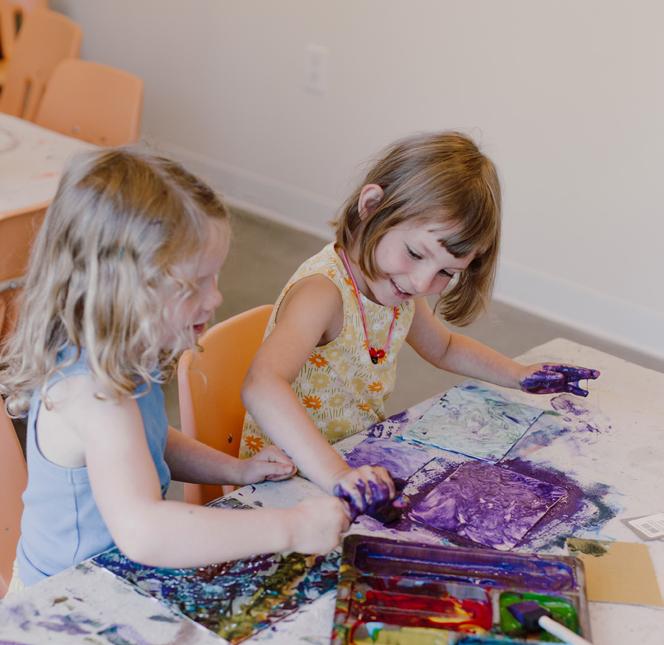
Ç Bozeman’s only play and art space that nurtures children’s creativity and development. The 3,000-square foot indoor playspace is designed for children under 9 and their families. State of Play offers open play times and a variety of caregiver and child classes. State of Play is also home to an arts- and play-based preschool for ages 2 through 5 as well as after-school art classes for ages 3 and up. The modern and clean environment offers a space for birthday parties and get-togethers curated to make your special event one to remember. Visit www.stateofplay.co for more information.
Mondays from 4-5 p.m. (drop off)
Ç State of Play’s newest after-school class is designed for girls ages 6 to 10 who are eager to create, connect and explore who they are through the arts. Whether your child loves drawing, building, imagining—or just needs a little more space to be themselves— this offering supports their whole self: heart, mind and hands. Even though this class is geared toward girls, as part of State of Play’s commitment to inclusivity, all are welcome.
Ç Ages 3 to 5:
Tuesdays from 4-5 p.m. (drop off)
Ç Ages 6 and up:
Thursdays from 4-5 p.m. (drop off)
Art Club is a joyful after-school program where kids dive into a new art material each month—from clay and wood to fibers and found objects. Each week begins with an “art meeting” to discover an artist working in that chosen medium, followed by hands-on time to create personal works of art inspired by their process. At the end of the month, children proudly host a mini art show to share their creations with family and friends.
Ç Wednesdays from 4-5 p.m. (Drop off)
Tinker Lab is an after-school art experience where kids ages 4 and up transform recycled materials and found objects into imaginative miniature worlds. Each week, they’ll build homes, landscapes and characters—designing everything from tiny wallpaper to furniture and gardens—while exploring what makes a space feel like home. As they tinker, they’ll also craft stories behind each creation, bringing their little worlds to life.
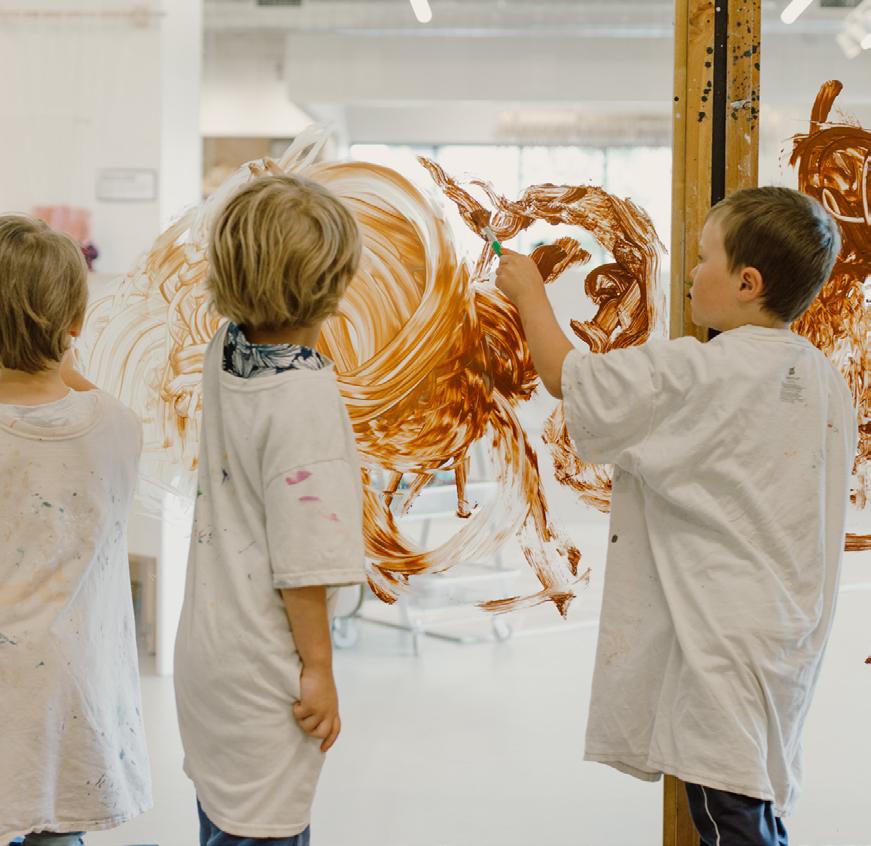
Ç The vision of the Orchid Club is that every family raising a child with special needs will feel supported, empowered and connected with others sharing the joys and struggles of this unique journey. Through playgroups, community events and educational opportunities you will know you are not alone and there is joy to be found. Visit www.orchidclubmt.org for more information.
Ç ExplorationWorks Science Center’s Early Explorers education program gives preschool-age children an opportunity to experience interactive science activities led by skilled educators passionate about learning. Early Explorers classes are geared toward kids under age 5 and their caregivers. For more information, including the dates and times of the Early Explorers program, visit ExplorationWorks.org
Lewis & Clark Library
Ç Any child from birth to age five, living in Lewis and Clark County, is eligible to receive high-quality, customized Imagination Library books every month until their 5th birthday.
To register visit https://lclibrary.org/459/Dolly-PartonsImagination-Library
Please note, children living in Augusta, Wolf Creek and Lincoln are still eligible to receive books from the Imagination Library, but they are sponsored by a different local affiliate. To find your affiliate, visit www.imaginationlibrary.com/usa/find-my-program.
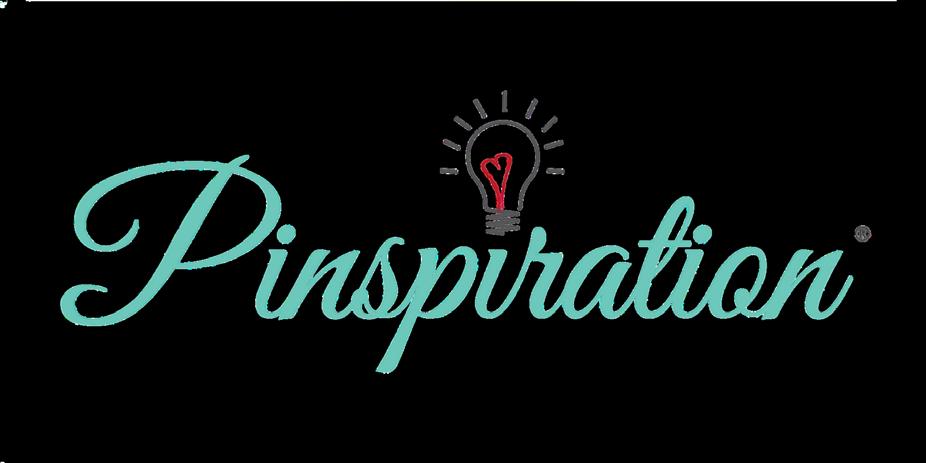

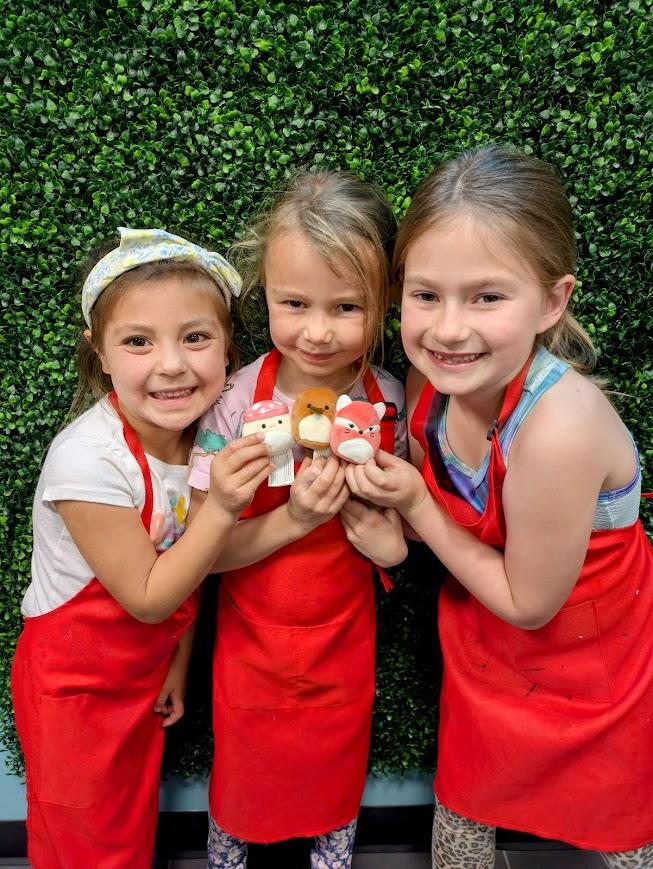

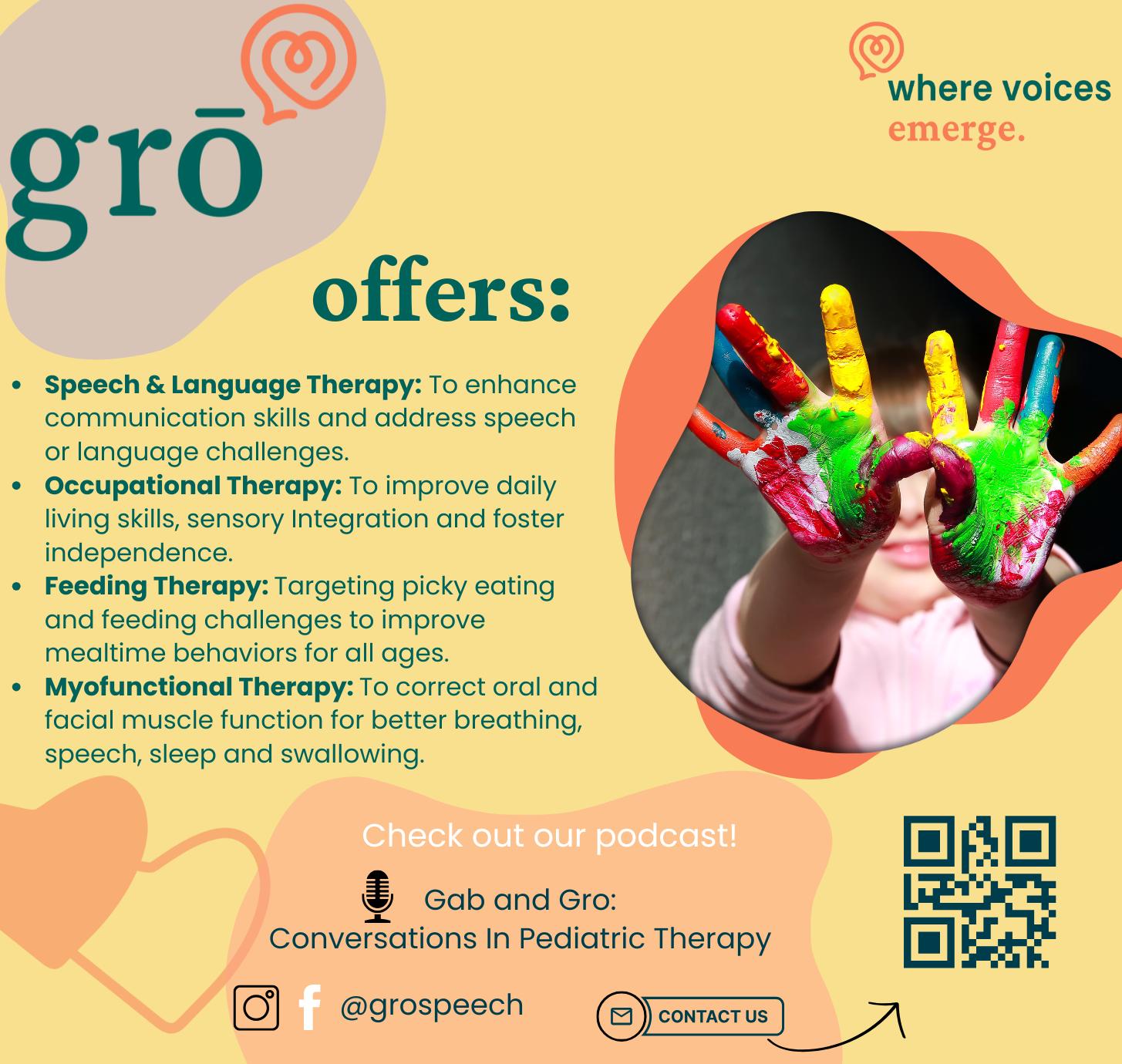
for 5 and under
Ç The Flying Giant Adventure Park’s Giant’s Castle is specifically designed for ages 6 and under. For more information visit www. sleepinggiantparks.com
Ç The MOMS Club of Helena offers a fun calendar that appeals to moms and kids of all ages. Members range in age from their early 20s to mid-40s, and kids run the gamut from prenatal to college. Activities are designed around what the moms want to do, so there is something for every mom, no matter how old her kids may be. Annual dues are $20 per mom, and moms are never turned away if they cannot pay their dues.
For questions and more information visit www.momsclubofhelena.org or the MOMS Club of Helena Facebook page www. facebook.com/MOPSHelena.

Preschool STEAM
Ç Snapology’s preschool STEAM programs encourage young learners to explore science and technology, discover designing and building while enhancing fine motor and early literacy skills. For more information visit www.snapology.com/ montana-helena.
Ç Snapology social skills programs creatively use LEGO® bricks as the mechanism for children to interact and communicate with one another. These programs help children develop the skills to foster good relationships and caring attitudes.
WRITTEN BY MEREDITH JOHNSON | PHOTO ADP STUDIO
I still remember quite vividly sitting in my car after dropping my oldest off at Willson Preschool 19 years ago. I sat in the car and cried. I knew he was going to have a great morning, that he was in good hands and that this needed to happen. And still. It is so hard.
Many of you may be in the same boat, and after 15 years of teaching preschool and launching three kids out the door, I have some tips that you may find helpful.
First, know that separation anxiety is completely normal, for you and your child. Embrace that; they are bonded to you and comfortable with you and being home…that is a win. Being away from family members and in a whole new environment with new adults and other kids their age is a BIG adjustment. Of course, each kid is unique and the process should be somewhat individualized. Let your child take the lead and show you what they need.
My first tip is to stay calm and positive. If you are confident in your child’s ability, they can feel it and almost “borrow” it until they are confident in themselves. You can be honest that you’re nervous too, that it’s a big change for you as well, but you know they are going to do great and that school is important.
The other thing your child can borrow from you is your trust in their teacher. Find a program

with a kindhearted, loving staff that you feel good about. Your trust in the program and its teachers will convey to your kid as they build their own trust. They will feel that they are in a safe place doing important things.
Validate their concerns. Again, this is a big deal, and it’s completely normal and healthy to be worried about a new situation like this. On the flip side, if your kid bounds right in, ready to go, don’t worry — that behavior is normal, too. Honestly, there is a wide spectrum of “normal” when it comes to children and human beings in general. Validation of their feelings is everything for your kid (at all ages and stages).
My next tip is to talk about it, but not too much. I know this sounds like a riddle, but often too much discussion (especially at this young preschool age) can provoke anxieties that weren’t there. You know your child best. You don’t want to minimize it, but find somewhere in the middle…you’ll know it when you find it. I do believe less is more, but maybe start by talking through what you know, for example: “You are going to play with new toys and new friends and your teacher will be there for you if you need anything.” And the most important thing? That they are capable and can do hard things. Acknowledge that there are things you don’t know, and that’s OK, too. But the biggest message you want them to hear is that you know they can do it.
I also love the “bridge” you can build between the drop-off and the pick-up. For example, on the way to preschool you can tell them how excited you will be to see them after they’re done and hear about all the cool things they did.
Most importantly, make a plan and don’t draw it out. Short and sweet. We love a hug, a high five or a fist bump before they go off to explore and discover in the classroom. One of our favorite moms used to have a ritual, almost a mantra, with her son, “You are brave, you are strong, you are kind and I love you.” Fist bump and out the door. I still love that. Who among us doesn’t need to hear that every morning? Just know you are doing important work; I would argue some of the most important work of preschool. My kids’ kindergarten teacher used to say she was ready to teach her class the curriculum of kindergarten but needed kids to show up ready to learn.
And I know it’s hard, but I promise it gets easier. And then harder. Then easier. Until you flash forward 15 years or so and are dropping them off at college.
But that’s a whole other article.
The following articles are brought to you by the
At the heart of the Bozeman Wellness Expo is a shared belief: Nurturing a child’s emotional well-being starts with supporting the whole family. Here are three local providers whose work intersects with children’s emotional well-being in powerful ways. From music that builds emotional connection to parenting support rooted in empathy to nutrition that fuels mood and development, these experts offer practical tools for raising resilient, connected children.
WRITTEN BY BRIT PHILLIPS, EARLY CHILDHOOD MUSIC EDUCATOR
Music supports early childhood development in powerful ways by boosting language, motor skills and emotional well-being. Its benefits don’t stop with children. Shared musical experiences can be just as meaningful for parents and caregivers.
In her community music classes in Bozeman, Brit Phillips has seen how music helps caregivers feel more connected, grounded and joyful. Simply by showing up, participants reap emotional benefits from singing along and being present.
In today’s fast-paced world, many need to relearn how to play with their children. Music provides a low-pressure, joyful way to reconnect while also building language and social emotional skills.
Perfection is not the goal. If you struggle to keep a steady beat, let that be part of the fun. Tired of typical kids’ music? Throw on some Motown or early rock. Chances are, your child will light up, and you will too.
Music encourages deep breaths, full-body movement and calming sensory input. Brit’s biggest tip? Start small. Check out a library storytime or local music group. You might be surprised how much you need it, too.
Follow along to join on Instagram: montana_music_mama.
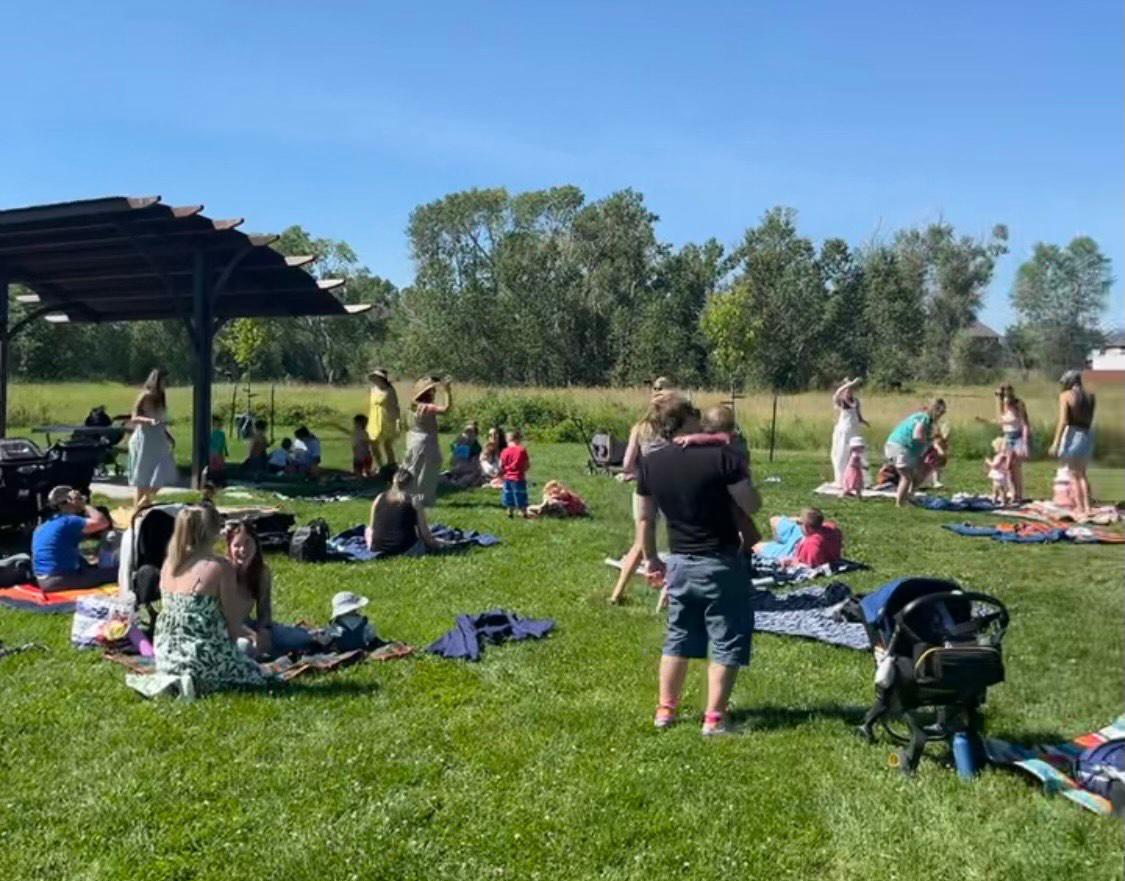
WRITTEN BY EMILY NILES, CERTIFIED PARENTING COACH
As a parent, I used to feel like I was constantly managing meltdowns — until I discovered Hand in Hand Parenting. I learned to stop trying to shut down big emotions and instead support my child in releasing them. It was messy at first, but once those stored-up feelings started to clear, the emotional storms became shorter and less frequent.
One unexpected result? My son stopped being a picky eater and his gut started to heal.
Like many kids, he used to refuse foods and melt down at mealtimes. Once I started focusing on connection and helping him feel emotionally safe, his eating habits shifted. We weren’t forcing bites or bribing with dessert. Instead, we were building trust, one moment at a time. As his nervous system calmed, so did his relationship with food.
Our children’s behaviors often reflect what’s going on beneath the surface. When we meet those needs with empathy and presence, healing happens from the inside out.
If you’d like support in navigating your child’s big emotions or puzzling behaviors, I’d love to connect (Instagram: mom_bika)
WRITTEN BY KYLIE CHIDSTER, INTEGRATIVE HEALTH PRACTITIONER AND FOUNDER OF ALTA PEAK WELLBEING
Healthy fats are one of the most underrated tools for supporting emotional well-being, especially for growing young children. A child’s rapid brain development requires nutrients for fuel. In the early years of parenting, a mother’s brain is also in constant overdrive: multitasking, managing stress and navigating intense emotions. Fats like coconut oil, nut butters, avocado, olive oil, yogurt and omega-3s from flax or chia seeds can help stabilize mood, balance hormones and keep the brain feeling sharp and steady.
When we skimp on fats, it’s no surprise we feel foggy, anxious or emotionally drained.
For children, healthy fats are essential building blocks for brain and nervous system development. They’re key for learning, memory and emotional regulation. Most children simply don’t get enough. These fats also help little bodies absorb fat soluble vitamins like A, D and E, and nutrients critical for growth and immunity.
Whether it’s a smoothie with nut butter, or a homemade snack bar made with coconut oil, adding whole food fats is an easy and impactful way to nourish both children and parents.
For more information visit Instagram: alta.peak or altapeakwellbeing.com

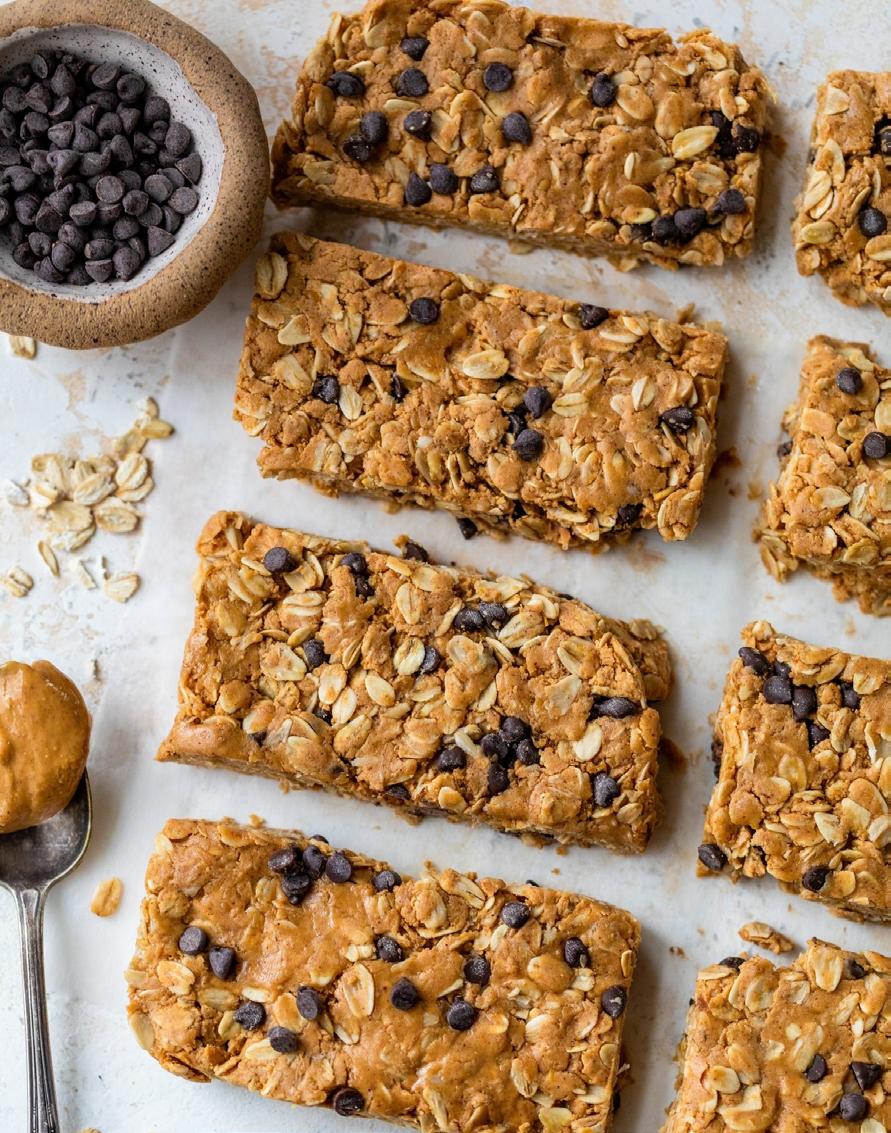
Ç 2 cups nut butter
Ç 1 cup coconut oil
Ç 1 cup honey
Ç 4 scoops quality protein powder
(I love Just Ingredients because they use real food as the protein sources, a variety of sources for increased absorption and they also have healthy fats in their powder)
Ç 2 tsp. vanilla
Ç 4 cups oats
Ç chocolate chips
Ç Top with flaky salt
Mix all ingredients together, set in the freezer for a few hours and then cut up into bars or mini squares. (Great for busy parents too)
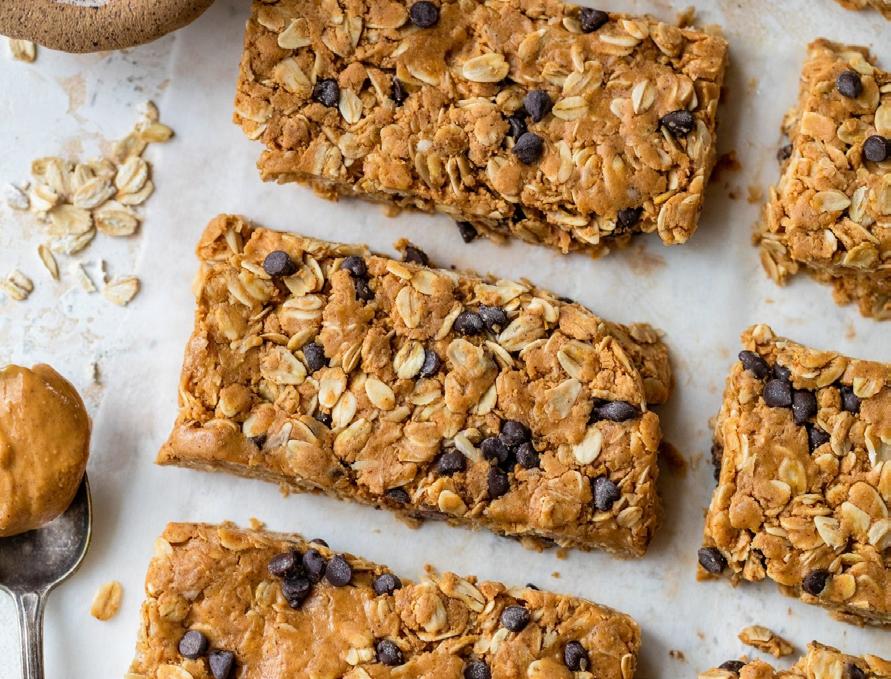
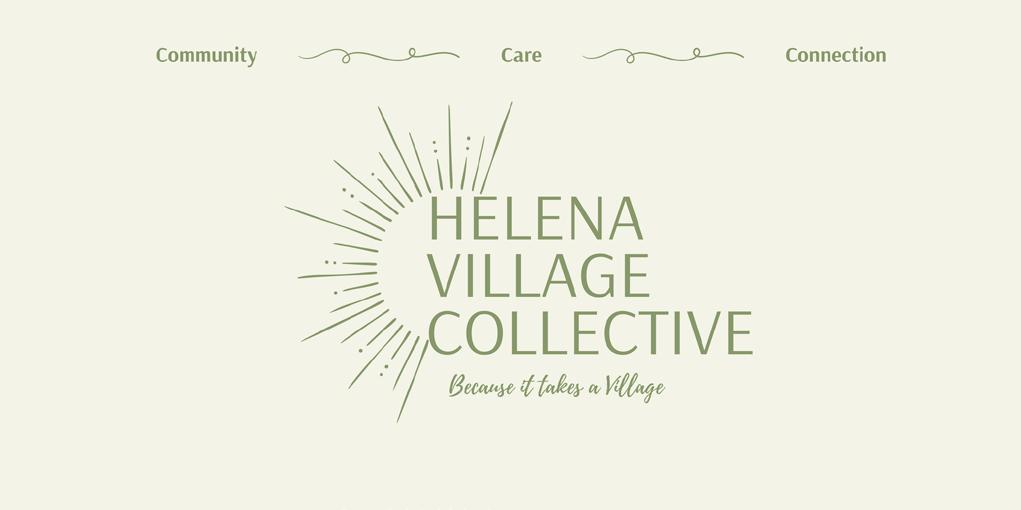


R E S O U R C E G U I D E
INTRODUCING OUR for Helena families
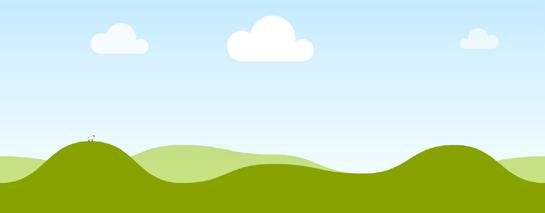

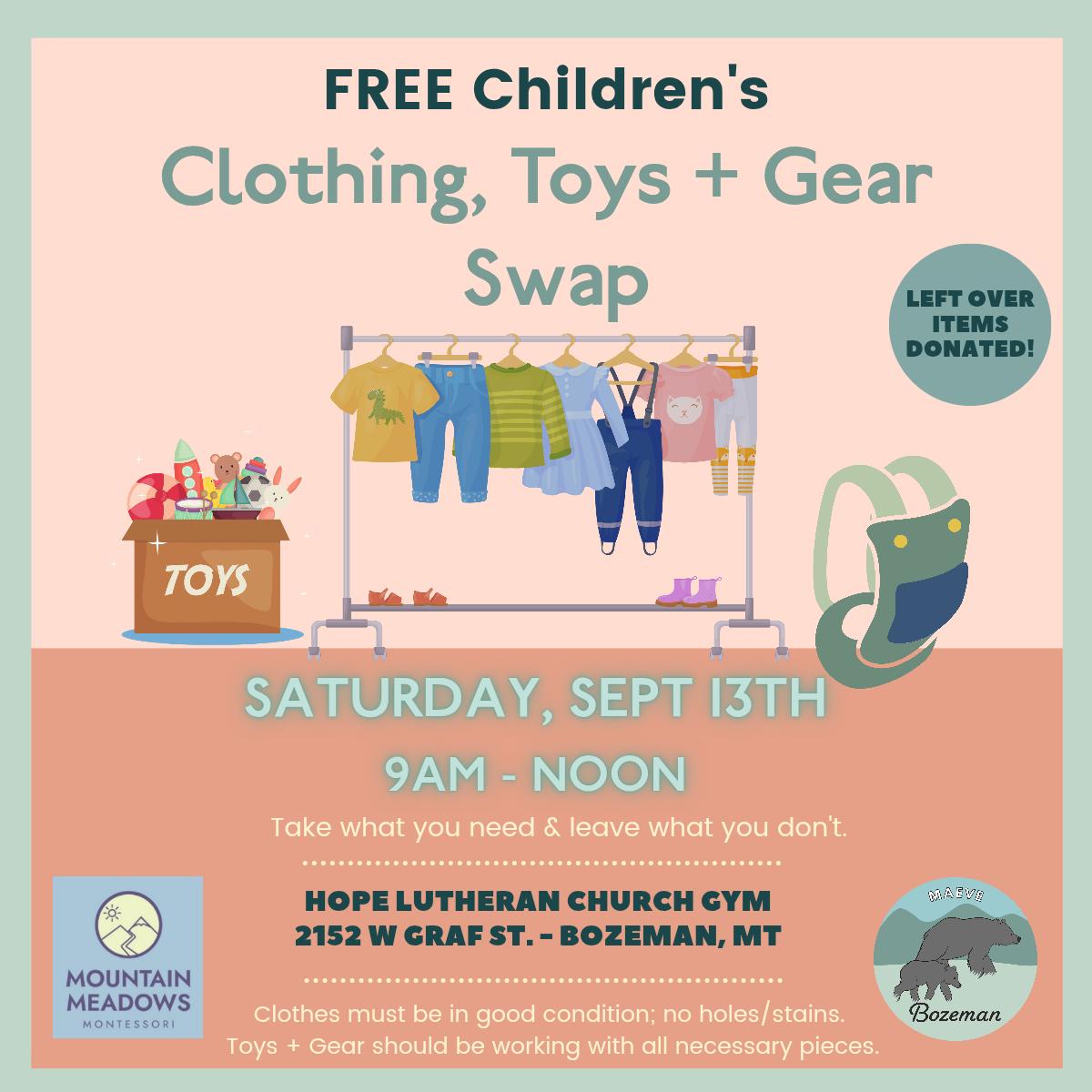


WRITTEN BY ALLEGRA BERESZNIEWICZ M.S., CCC-SLP/QOM, OWNER, GRO SPEECH
From your baby’s initial coo to their first real “mama” or “dada,” communication begins long before words ever appear. These early milestones are the roots of language development—and just like gardening, with the right attention, encouragement and tools, your child’s communication can grow strong and thrive.
At Gro Speech, they believe that every parent has the power to support their child’s early communication journey. Gro partners with families throughout Montana to provide support, education and personalized therapy services both in person and remotely.
Whether your child is just starting to babble or you’re concerned they’re not meeting milestones, here are some simple, everyday ways to help build strong communication skills from the very beginning.
Ç Start Early: Talk, Talk, Talk! Even before your baby understands words, they are soaking up language. Narrate your day: “Now, I ’m zipping up your coat,” or “Let ’s get the blueberries.” Using real words in real situations helps children begin to link sounds and meaning.
Tip: Face-to-face interaction is key! Babies watch your mouth and eyes as they begin to learn how communication works.
Ç Listen and Respond
Communication is a two-way street. When your child babbles, gestures or makes a sound—respond. This back-and-forth exchange is called serve and return, and it ’s one of the most powerful ways to support brain and language development.
Try this: If your toddler points to a dog and says “ Da!” you might respond, “Yes! That ’s a dog. He’s big and brown!” You are not only responding to their communication but also expanding their language.
Ç Read Early and Often Reading together from infancy builds vocabulary, attention and imagination. Choose books with repetition, simple pictures or textures for little hands. You don’t have to read every word—label pictures, ask questions and let your child help turn the pages.
Ç Use Gestures and Sign Language
Simple signs like “more,” “all done” or “milk” can give babies a way to express themselves before words come. Gestures bridge the gap between understanding and speaking, reducing frustration and boosting confidence.
Ç Know When to Ask for Support
Every child develops at their own pace, but if you notice your baby or toddler isn’t meeting typical milestones—such as not babbling by 9 months or not using words by 18 months—it might be time to seek professional support.
At Gro Speech, their licensed speech-language pathologists and occupational therapists specialize in early childhood development. They offer play-based, individualized therapy for families in Bozeman and virtual support statewide for Montana families in more remote areas.
Early intervention can make a life-changing difference—and it’s never too early to ask questions.
How Gro Speech Can Help
• In-person speech and occupational therapy sessions for babies, toddlers and preschoolers (and beyond) in the Bozeman/Belgrade area.
• Parent coaching to help you feel confident supporting communication at home.
• Virtual therapy options available across Montana when appropriate.
• Collaborative care with pediatricians, daycares and other specialists.
Gro Speech makes therapy approachable, engaging and tailored to your family’s needs—whether it’s answering a quick question, guiding your child’s first words or building skills for long-term success.
Every child’s voice matters. If you’re curious about your child’s communication skills or want tips tailored to your family, reach out.
At Gro Speech, they’re honored to support Montana families as they nurture their little ones’ ability to connect, express and thrive.
Bozeman-based. Montana-wide.
Visit www.grospeech.com or call at 406556-9853 to learn more.
Gro Speech offers pediatric speech, language, feeding/ swallowing, myofunctional, occupational and lactation consulting therapy services from birth to adolescence. We have been serving Gallatin County and beyond for 20+ years with in-person clinic sessions and remote, telehealth therapy options when appropriate for families. For more parenting strategies and ideas in relation to speech and sensory development listen to Gab and Gro: Conversations in Pediatric Therapy anywhere you listen to podcasts.
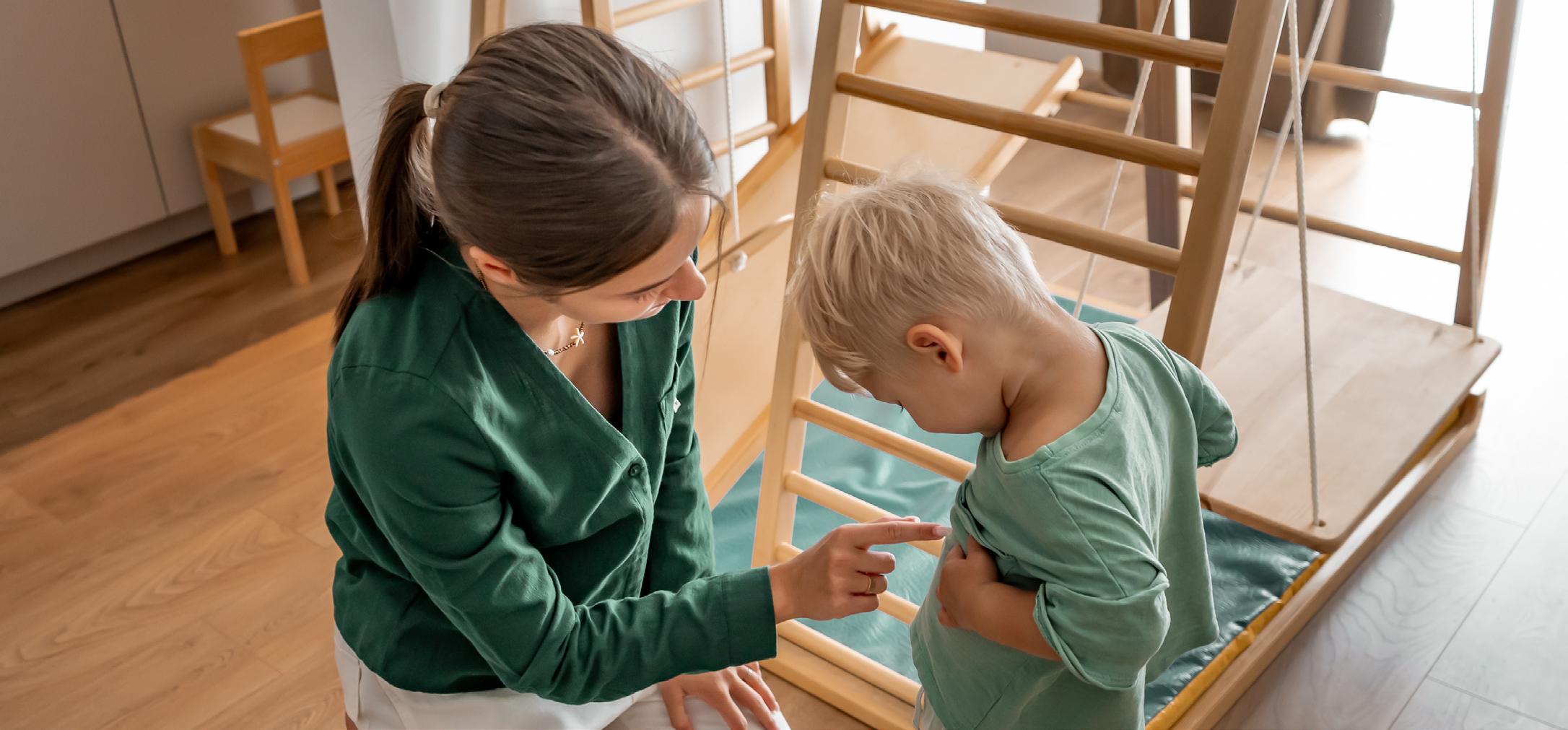
WRITTEN BY TAYLOR HAYTE
Although talking to your child about consent can be uncomfortable, fortunately there are ways to ease into the difficult but essential conversation. Consent, broadly speaking, means permission for something to happen or agreement by all parties. Though we often think of consent in connection with sexual activity, it extends well beyond that and is an important concept to understand to help protect your child as they grow into teens and young adults.
The first steps in teaching consent should include addressing bodily autonomy. This reinforces a child’s understanding of boundaries, empowers them and helps them navigate the world. Avoid overwhelming your child with kisses, hugs or other physical contact when they show signs of discomfort—this teaches them that “no means no.” Asking for permission before engaging in physical contact with your child or others models behavior they can mirror.
Clear communication is also key. Explanations such as, “I’m going to tie your shoes so you don’t trip,” or, “I’m going to brush your hair so you are ready for school,” are good examples of explaining what you’re doing and why. This helps your child learn about informed consent from a young age.
Talking regularly about how your child is feeling— both physically and emotionally—encourages healthy attitudes about their changing bodies. Helping them identify “safe adults” (like teachers, parents, coaches or counselors)
ensures they have someone to turn to when they feel uncomfortable. This creates a strong support system for when puberty begins and they are in need of guidance.
When discussing bodies, use correct anatomical terms. This empowers children and helps them feel less ashamed of their bodies. Avoid using slang or nicknames, which can lead to confusion or embarrassment. Children may feel ashamed if they are discouraged from saying words like “penis” or “vagina.” Normalizing this language helps them feel confident and informed.
Consent should also be discussed beyond the context of sex—it applies to everyday life. For example, comparing consent to using someone’s phone: “Would you let anyone use your phone without asking?” If your child doesn’t have a phone, use a toy instead: “Can I borrow Mr. Bear for a second?” Or, “Would it be OK if I used Mr. Bear to help clean up?” Remind them that it’s always OK to say “no,” and that consent can be withdrawn at any time. The media greatly influences children’s understanding of these topics. Pointing out inaccurate portrayals of consent or anatomy—and providing accurate alternatives—helps ensure they receive the right messages. One great example is a child-friendly animation by Tim Ruffle called Consent, which illustrates the various ways consent can be applied to everyday life.
The Harvard Graduate School of Education recommends the following books to help inform your child:
» My Body! What I Say Goes! by Jayneen Sanders, illustrated by Anna Hancock
» Miles Is the Boss of His Body by Samantha Kurtzman-Counter and Abbie Schiller, illustrated by Valentina Ventimiglia
» I Said No! A Kid-to-Kid Guide to Keeping Private Parts Private by Kimberly King and Zack King, illustrated by Sue Rama
» Personal Space Camp by Julia Cook, illustrated by Carrie Hartman
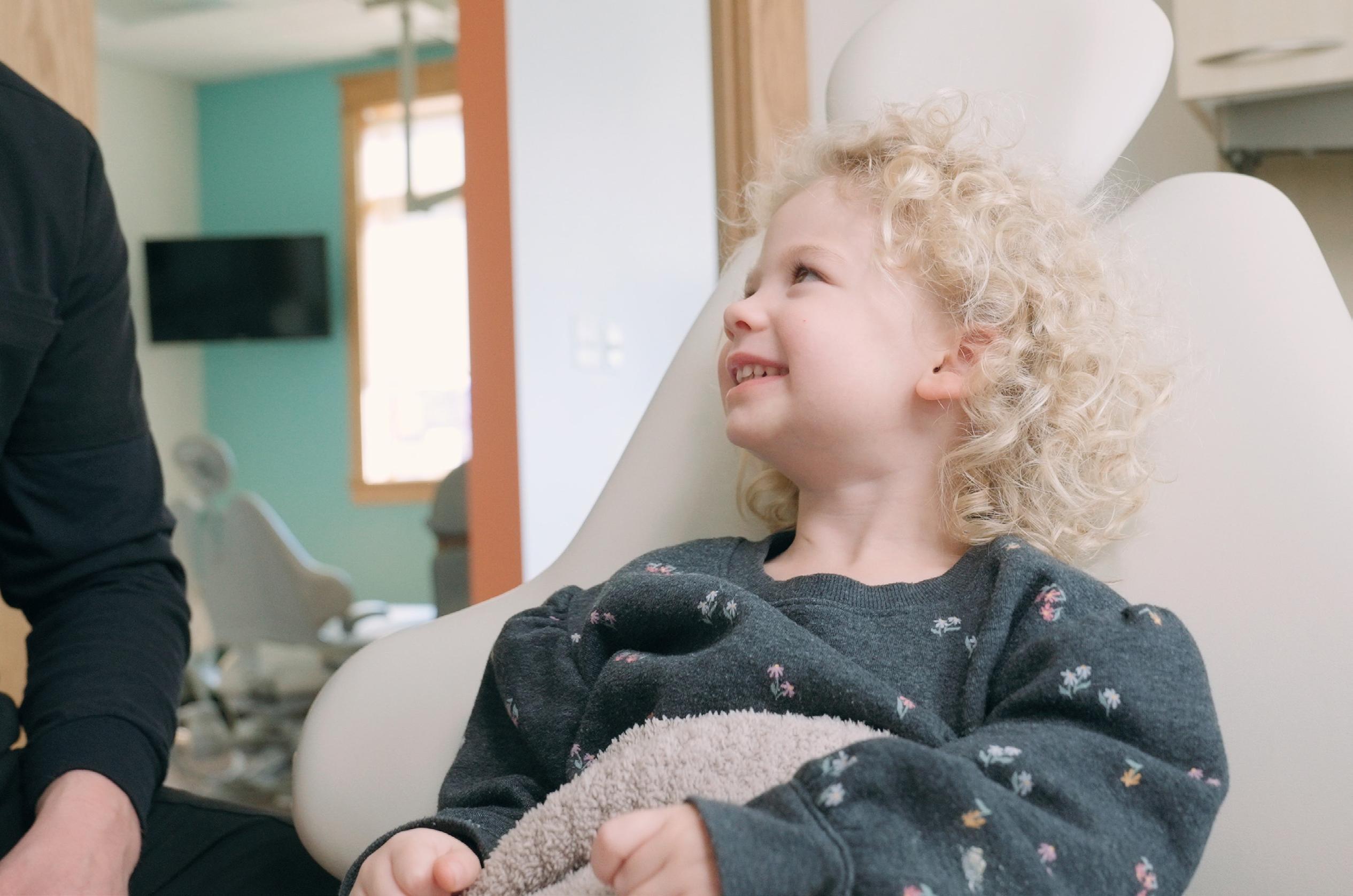
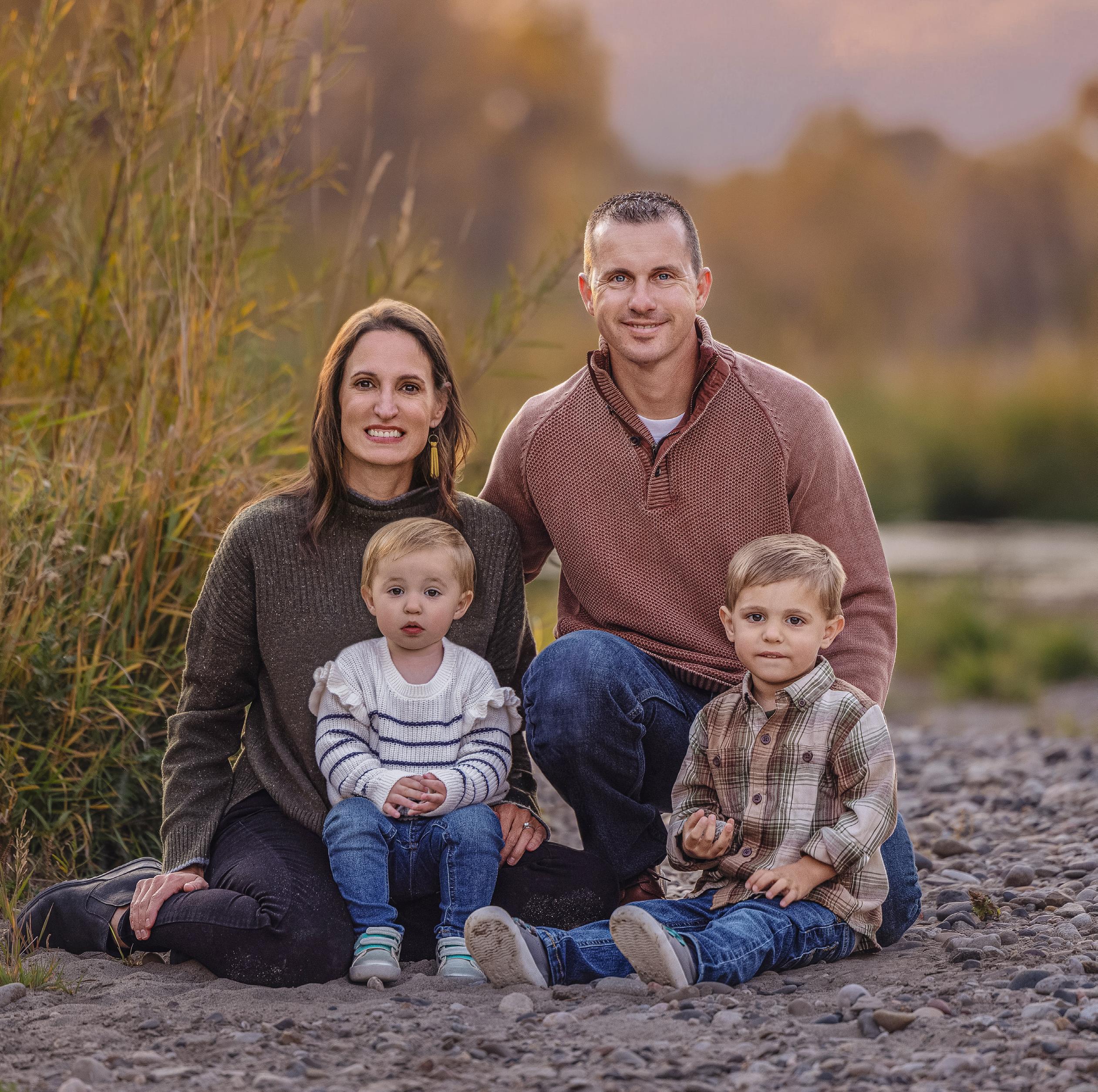
SEPTEMBER 3-24, 2025
Featuring fresh produce, herbs, plants and flowers, baked goods, woodworking, log furniture, antler art, photography and fine art, jewelry, clothing, food vendors and kids’ activities. Held at the Fire Pit Park in Town Center Plaza on Wednesdays from 5-8 p.m.
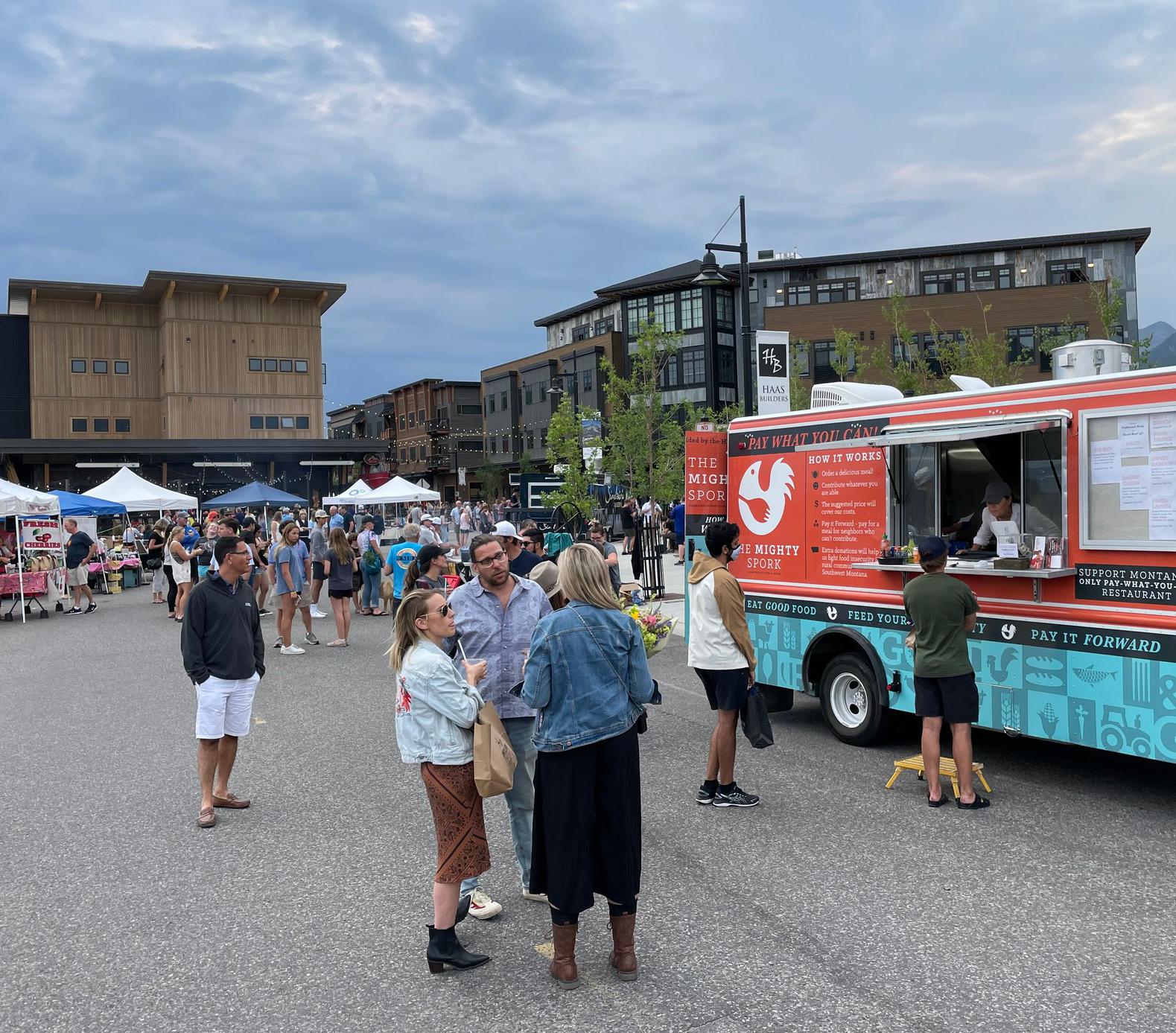
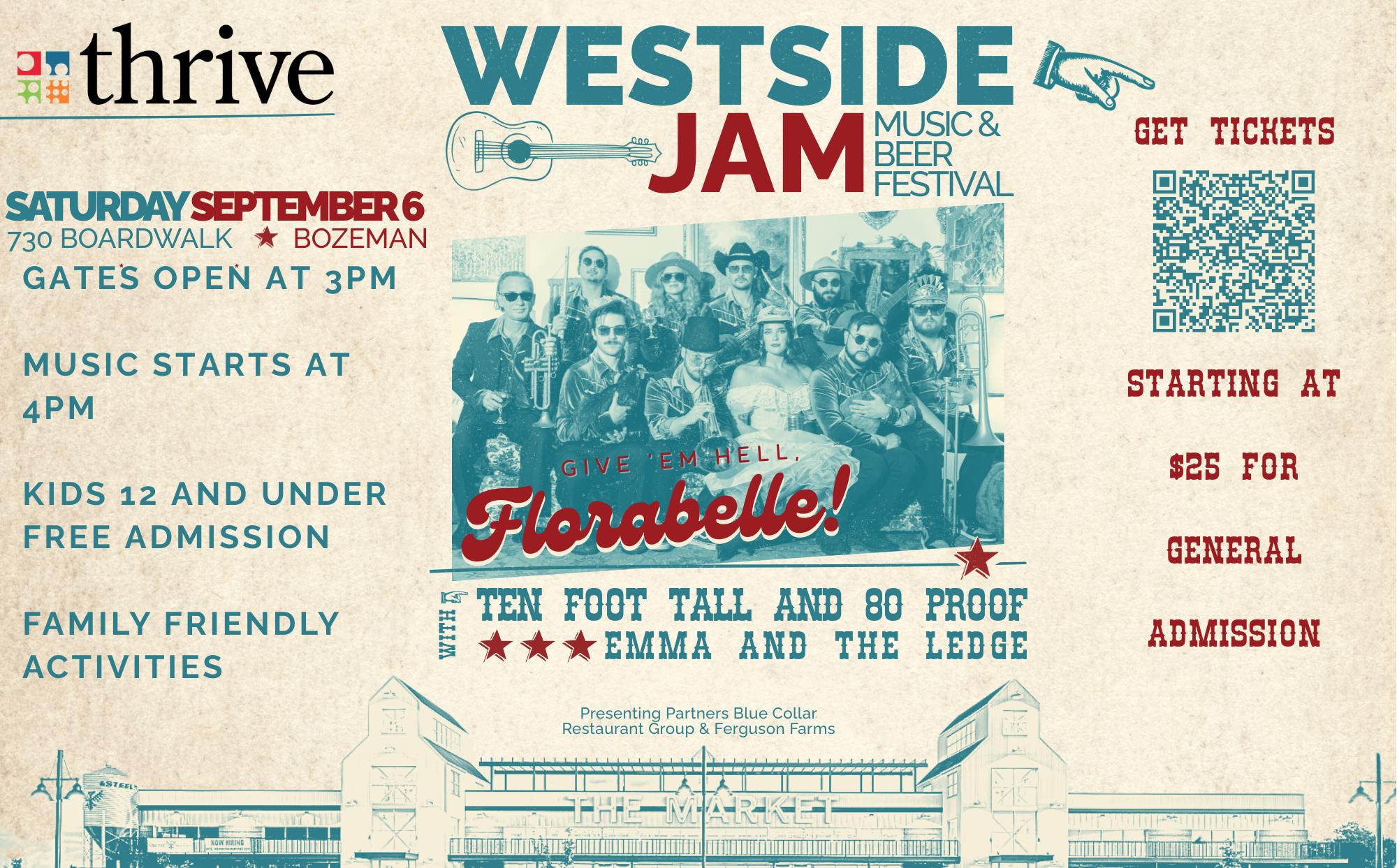
GALLATIN COUNTY FAIRGROUNDS / HAYNES PAVILION
SATURDAYS, SEPTEMBER 6 & 13, 2025
9 A.M. TO NOON

LINDLEY PARK
TUESDAYS, SEPTEMBER 2 & 9, 2025
5-8 P.M.
The Market Creatives commit a portion of the market’s revenues to the preservation and improvements of all Bozeman Parks.
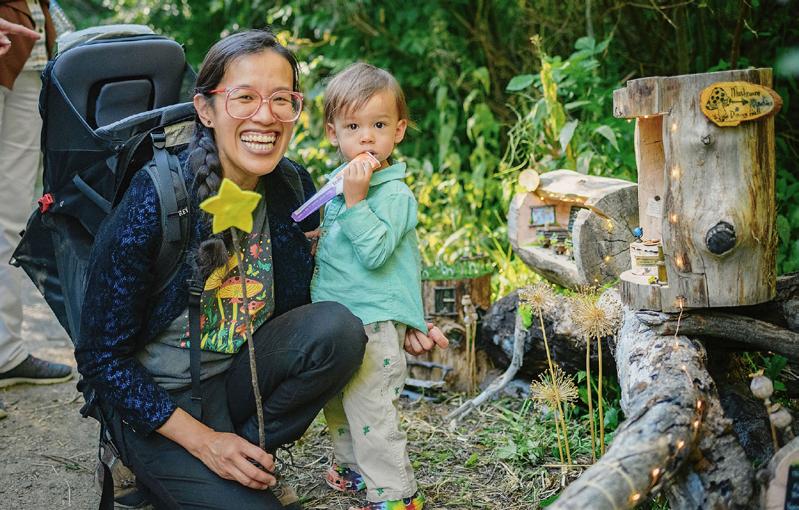

SEPTEMBER 5-21, 2025
Get your fairy wings ready and sprinkle a little pixie dust because it’s time for the most magical event of the year—Bumblewood Thicket Fairy Village. Nestled in the heart of the Gallatin Valley, this annual tradition invites all ages to step into a whimsical world filled with fairy houses, tiny shops and delightful surprises. Each year, 20 talented fairy architects (a.k.a local artists and makers) craft enchanting new homes for the fairies of Bumblewood.
The village is tucked away in the winding, wooded paths of Glen Lake Rotary Park, and once a year, the fairies lift the veil of protection to welcome humans into their hidden world.
You’ll know you’ve arrived when you cross the bridge over the East Gallatin River into the enchanted Bumblewood forest. You might even get a sprinkle of pixie dust from a fairy ambassador to kick off your adventure.
Bumblewood stays aglow at night, casting a spell of light until fairy bedtime at 9 p.m. But beware—this fairyland is a true adventure after dark. The paths aren’t lit, so the village will be glowing, but it’s up to you to wander the magical woods safely.
You can also catch spellbinding acts on the trail into Bumblewood every Saturday evening from 5:307:30 p.m. Local musicians, dancers and actors will bring fairy tales to life — no reservation required; just enjoy the performances as you stroll into the village. Create your own fairy house to display during the final weekend (September 18-21). Register online to join the display. Bumblewood is free. Park hours are 7 a.m. to 11 p.m. For more information visit www.randomactsofsilliness.com.



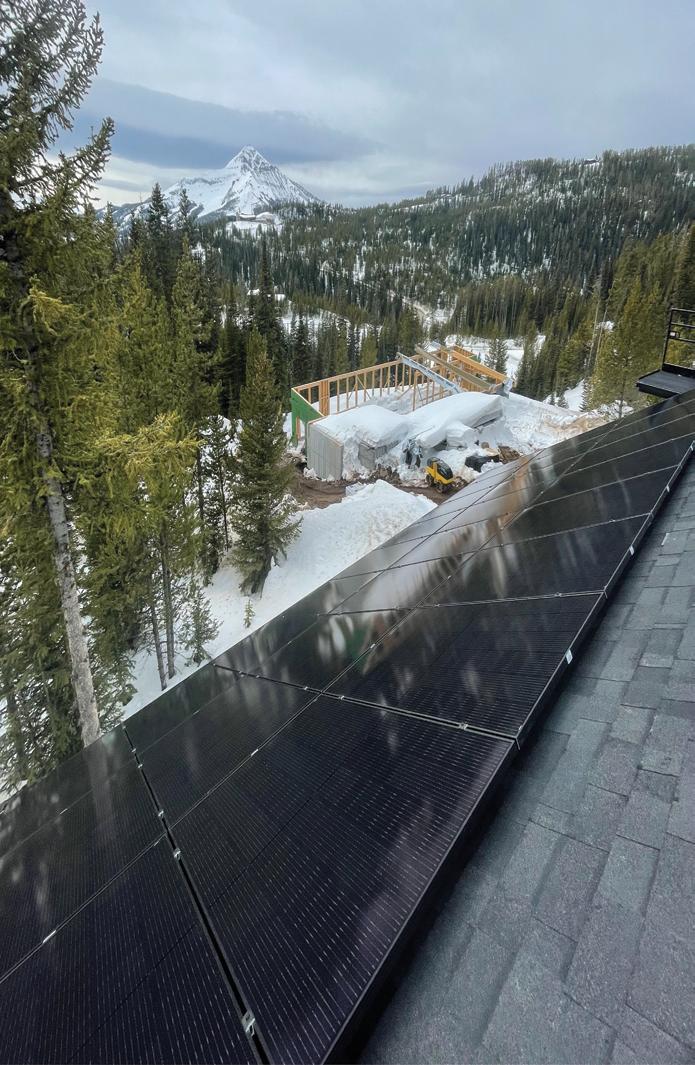
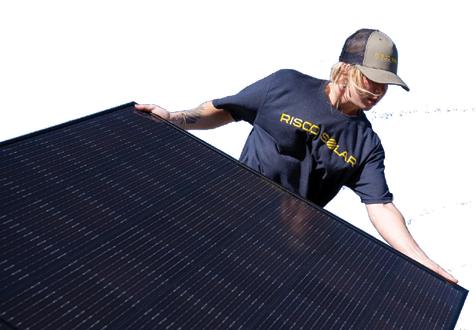
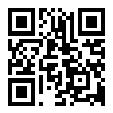
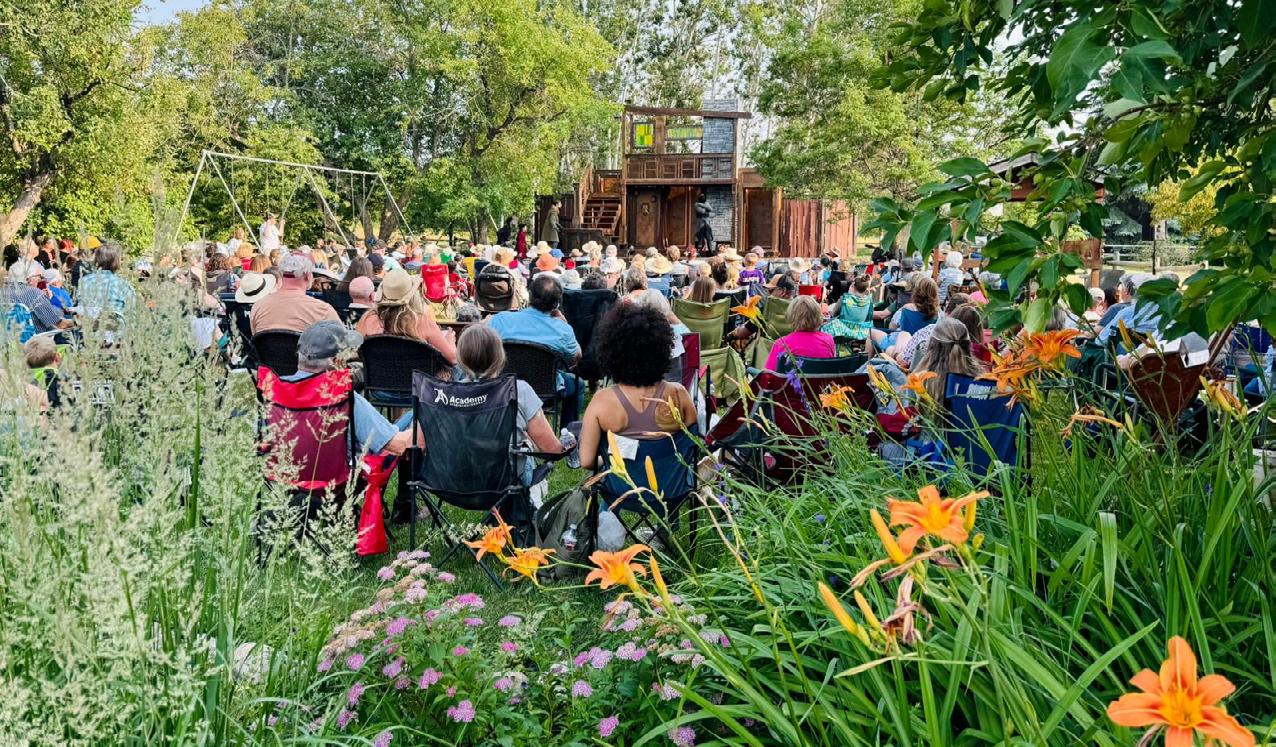
SEPTEMBER 9, 2025


Montana Shakespeare in the Parks will perform Shakespeare’s Henry V at 5:30 p.m. on September 9 at Bozeman’s Grant Chamberlain Park.
Henry V, one of Shakespeare’s historical plays, explores leadership, honor and the impact of decisions made in times of great uncertainty. A young man thrust into leadership of a nation torn apart by national destruction and discord, Henry grapples with the conflict between political expediency and his own moral compass, elevating themes of honor, justice and mercy.
Audiences are encouraged to bring a picnic to enjoy an evening together under the Big Sky among friends and neighbors.
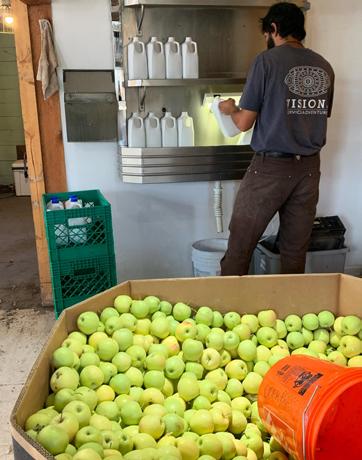
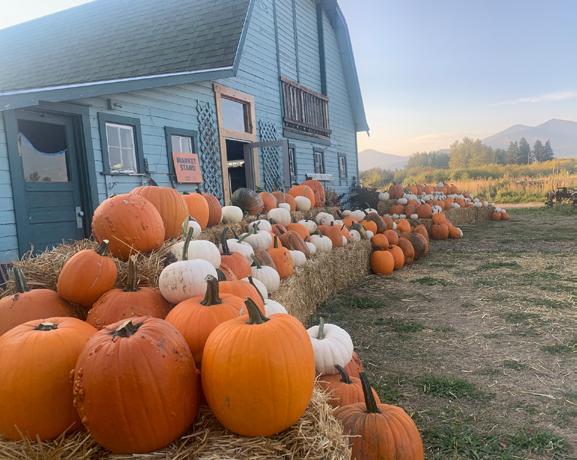
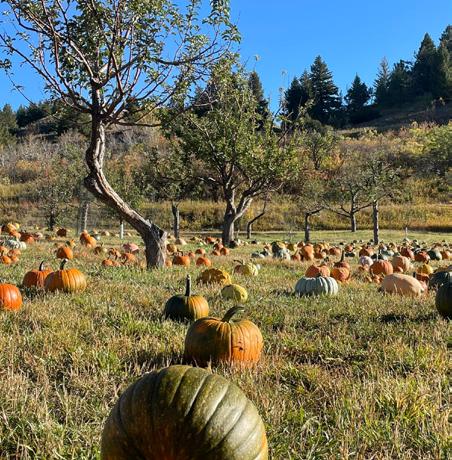
SEPTEMBER 27-OCTOBER 26, 2025
The Fall Festival at Rocky Creek has been a Bozeman tradition for more than 30 years. Every weekend, from September 27 through Halloween, the farm is packed with festivities: hay rides to the pumpkin patch, apple picking, cider pressing and more. The farm stand will be stocked with seasonal produce, carving pumpkins, decorative gourds, apple cider and more. Visit www. gallatinvalleybotanical.com for more information on upcoming events.

SEPTEMBER 27, 2025
Bozeman Parks & Recreation Department’s Bike Your Park Day will be held on September 27 from 10 a.m.-noon. Meet in Westwinds Park to celebrate new bike routes-in-design that will link together Bozeman’s beautiful west side parks. In addition to the east-west Raptor Route, the city is now designing a north-south pathway that will run more than 3.5 miles linking Bozeman Pond Park to Cattail Lake. With trail improvements, the parks along the new route will see natural resource enhancement, water conservation principles and added recreation. Come see the plan, give feedback and enjoy a lively day of learning and fun.
OCTOBER 29, 2025
The Bozeman Parks & Recreation Department invites you to share your Spooktacular creation during their annual community Pumpkin Stroll in Story Mill Park on October 29. Carve a pumpkin in the comfort of your own home, drop it off at the Story Mill Community Center anytime between 9 a.m. and 2 p.m. on October 29, and the Parks & Recreation Department will add a tea light and make it glow during the stroll that evening. Jack-o’-lanterns will be placed around the activity lawn in the Story Mill Community Park from 6 to 8 p.m. for all to enjoy. Drop in anytime and see them glow. Halloween costumes are encouraged and hot cider will be served.
OCTOBER 31, 2025
The porch of the historic Story Mansion at 811 S. Willson Ave. will be transformed on Halloween night, making it a perfect stop for trickor-treating on October 31.
NOVEMBER 3-DECEMBER 12, 2025
The Bozeman Parks & Recreation Department elves will be helping Santa send out his letters again this holiday season. To request a letter, visit www.bozeman.net/recreation and select “recreation registration” from November 3 through December 12 at noon.

NOVEMBER 8, 2025
Grab your pumpkins, jack-o-lanterns and gourds and meet the Bozeman Parks & Recreation Department at the Story Mill Community Park on November 8 from 11. a.m. to 2 p.m. for a smashing good time. Did you know that over 1 billion pounds of pumpkins are wasted in American landfills each year, contributing to harmful greenhouse gases? By composting pumpkins locally, you give organic material a second life, and the finished compost benefits farms and gardens right here in the Gallatin Valley. It is not just good for the planet; it’s also a blast for all ages. It’s free, it’s fun and it’s an opportunity to make a positive impact on our environment. The more pumpkins smashed, the bigger the difference.
NOVEMBER 14-16, 2026
The Third Annual Crankie Fest will take you “Into the Forest” with adventurous and tender tales of exploration and discovery among the trees. A crankie is an illustrated scroll that tells a story, created and performed by southwest Montana artists. Performances will also feature live music and sound effects as well as puppetry to bring the stories to life. These shows are free but advanced tickets are required. Best suited for those over age 5. Crankie Fest will be held at the Beall Recreation Center, November 14 through 16. Visit www.randomactsofsilliness.com for showtimes and to reserve a spot.
Look for Helena Village Collective all season long at the Farmers Market and other Helena area events. Come find the tent if you need a space to feed or change your baby, or want a quiet spot to rest. If you would like to sponsor the tent, or if you have any questions, please reach out to hello@helenavillagecollective.org

SATURDAYS, THROUGH OCTOBER 25, 2025
9 A.M. TO 1 P.M.
One of the longest-running markets in the state of Montana, the Helena Farmers Market welcomes local farmers, crafters, food vendors and other artisans bringing their Montana-made products downtown for the local Helena community to see and purchase. While they browse, shoppers can enjoy the serenade of local musicians and smell the fragrant aroma of fresh floral arrangements and kettle corn.
PSI Montana, Helena Chapter, is excited to share two upcoming events.
OCTOBER 4, 2025 | MEMORIAL PARK
A community awareness walk to support postpartum mental health.
OCTOBER 6 & 7, 2025 | DELTA HOTELS HELENA COLONIAL
A two-day professional training focused on supporting fathers during the perinatal period. Registration is now open. Please follow for updates: Facebook: Postpartum Support International – Montana Chapter Instagram: @mtpsichapter
OCTOBER 15, 2025
Grief doesn’t follow the school calendar. For many families, the back-to-school season can be especially tender—a reminder of what could have been or who is missing. Whether your loss is recent or long ago, parenting while grieving is a quiet strength few talk about.
In Helena, the Early Childhood Collaborative is working to change that.
Through gentle, inclusive gatherings, these events offer local parents a place to pause, connect and remember. From creative memorial projects to time in nature, these events are held every other month and are open to all who are grieving a child or pregnancy—at any age or stage.
On October 15, join the Early Childhood Collaborative for Wave of Light, a worldwide day of remembrance for pregnancy and infant loss. Participants will gather with candles, community and care.
Grief can feel isolating, but you are not alone. Learn more about upcoming events at ecchelena.org/loss-resources

LOCATED ON WEST PARK STREET, BETWEEN PARK AND MAIN
SATURDAYS THROUGH OCTOBER 4, 2025 FROM
8 A.M. TO 1 P.M.
Since 1995, the Butte Farmers Market has blossomed and grown, earning a reputation for providing shoppers with colorful and hardy hanging and bedding plants, farm fresh eggs, chickens, fruits and vegetables from many gardens in the Butte area and the Hutterite colonies near Choteau, and Hmong vegetable gardens in the Missoula and Bitteroot area.
Vendors provide a wide variety of baked goods, packaged sausages, fresh produce, cut flowers, salsa and other prepared foods. A variety of arts and crafts by craftspeople from throughout southwest Montana are available each Saturday as well.


On select days of the year, all National Park Service sites that charge an entrance fee will offer free admission to everyone. Mark your calendar for these National Park entrance fee-free dates in 2025!
September 27: National Public Lands Day
November 11: Veterans Day
sept 2025
Look for this post on the Montana Parent Facebook page starting August 1.
1. Like the post and Tag one friend
2. Follow @MontanaParentMagazine on Facebook (if you don't already!)
3. Follow @montanaballetco on Facebook too!
Designed for toddlers ages 2 to 3 years accompanied by a parent or caretaker, MBC’s Mini Movers focuses on the joy of movement to different musical rhythms, social awareness, coordination, balance, listening and communication skills, and fun in the ballet studio. It is a special opportunity to be creative and exercise while spending quality time together. Held Fridays, September through December, from 9:30-10:15 a.m.
Winner will be chosen at random and announced October 1. Must be 18 years of age to enter.




